A sensory garden is a thoughtfully designed space that engages all five senses: sight, smell, touch, sound, and taste. Creating one is about more than just planting pretty flowers; it's about curating an immersive experience that can be therapeutic, educational, and deeply relaxing. By carefully selecting plants, materials, and features, you can craft an environment that offers a rich tapestry of textures, fragrances, colors, sounds, and flavors. This type of garden provides a unique opportunity to connect with nature on a deeper level, making it a wonderful addition for people of all ages and abilities.
1. Aromatic Herb Spiral Sensory Garden
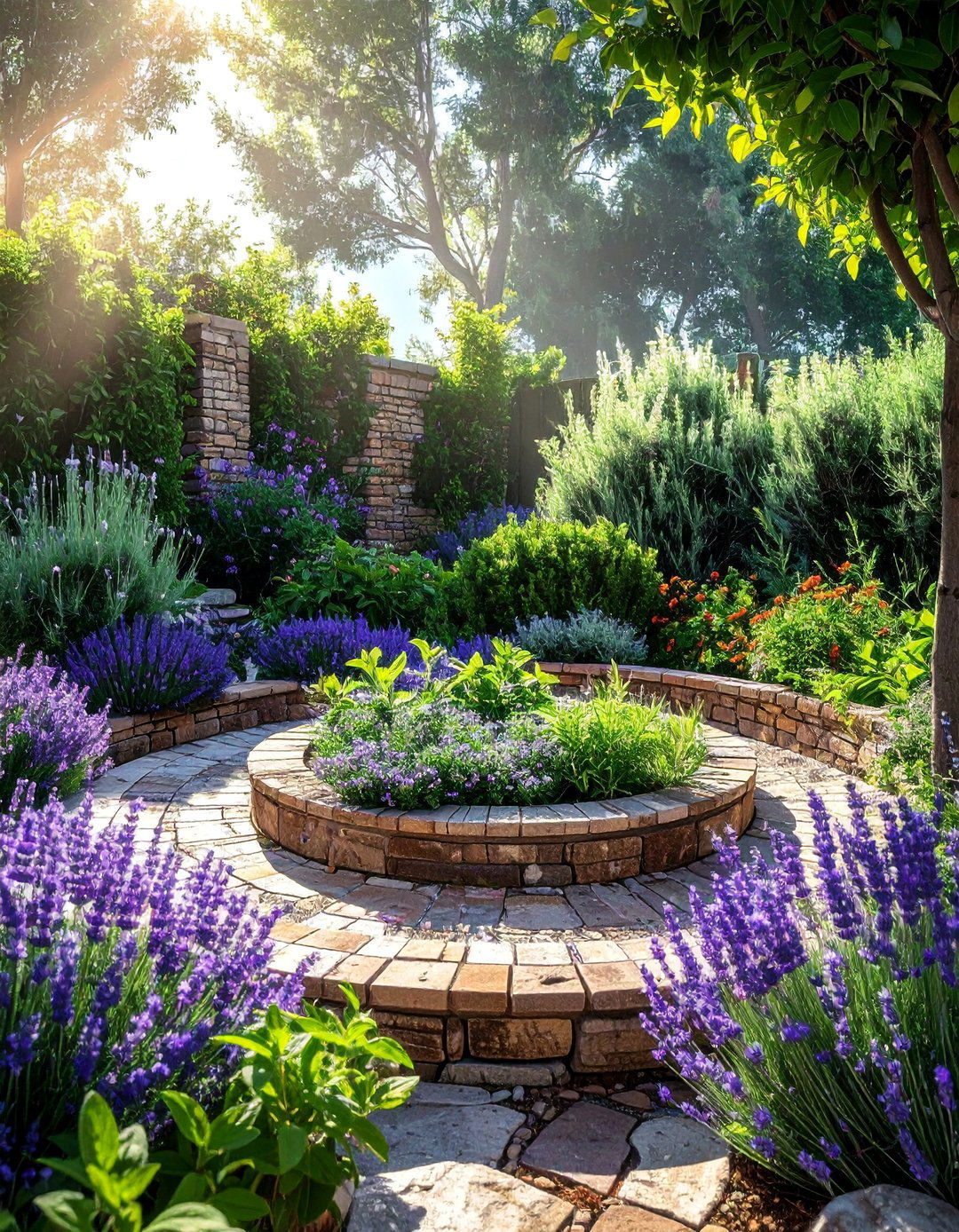
An aromatic herb spiral is a fantastic way to engage the sense of smell in a compact, vertical design. This sensory garden idea involves building a spiraling stone or brick structure filled with soil, creating different microclimates for various herbs. Plant fragrant herbs like lavender, rosemary, thyme, mint, and lemon balm along the spiral. As you walk around it, brushing against the plants releases their distinct aromas. The design not only saves space but also makes harvesting easy. This feature provides a powerful olfactory experience, as the scents mingle and change with the sun's warmth and the gentlest breeze.
2. Tactile Pathway Sensory Garden
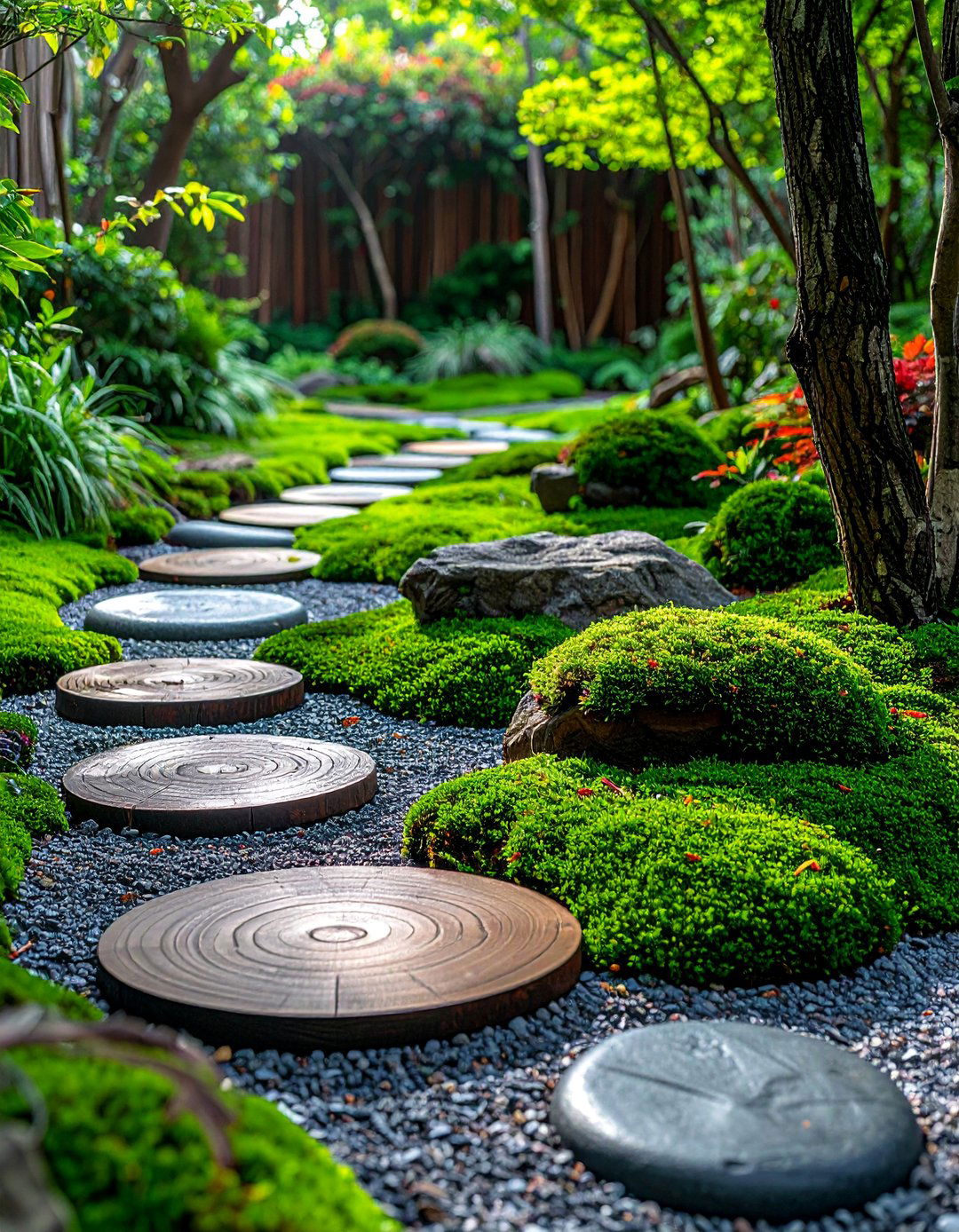
For a truly hands-on (or feet-on) experience, a tactile pathway sensory garden stimulates the sense of touch. Construct a winding path using a variety of materials in distinct sections. You could use smooth river stones, rough-cut slate, soft moss, fine sand, crunchy gravel, and warm wooden rounds. This design encourages visitors, especially children, to walk barefoot and feel the different textures under their feet. Planting low-growing, resilient groundcovers like creeping thyme between pavers can add another layer of texture and a burst of fragrance when stepped on, blending the senses of touch and smell seamlessly.
3. Edible Berry Patch Sensory Garden
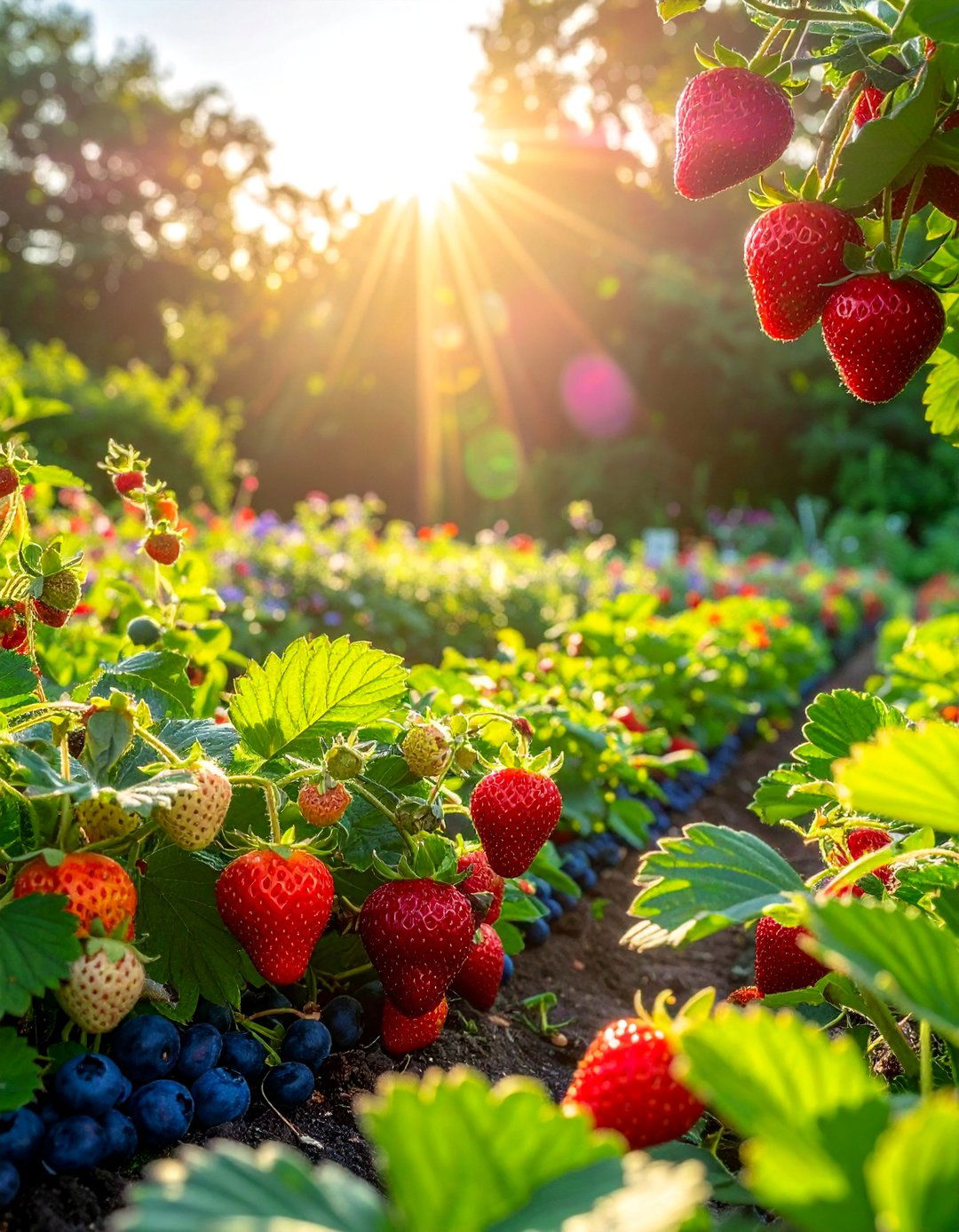
The sense of taste is often overlooked in garden design, but an edible berry patch sensory garden brings it to the forefront. Designate an area for growing a variety of berries like strawberries, blueberries, raspberries, and blackberries. The experience starts with the sight of colorful fruits, continues with the touch of picking them, and culminates in their sweet or tart taste. This sensory garden idea is not only delicious but also highly educational, teaching about where food comes from. Ensure the plants are grown organically for safe consumption directly from the bush, offering a delightful and rewarding garden-to-table experience.
4. Auditory Water Feature Sensory Garden

To engage the sense of sound, an auditory water feature sensory garden is unparalleled. The gentle sound of moving water has a naturally calming and restorative effect. Consider installing a small bubbling fountain, a cascading waterfall over rocks, or a tranquil pond with a gentle stream. The trickling and splashing noises help to mask unwanted background sounds, creating a peaceful sanctuary. This feature also attracts birds, whose songs add another layer of natural music to your garden. The combination of water sounds and birdsong creates a symphony that soothes the mind and enhances the overall sensory experience.
5. Colorful Flowerbed Sensory Garden for Sight

A colorful flowerbed sensory garden is designed to be a visual feast. This idea focuses on using bold, contrasting, and harmonious color schemes to stimulate the sense of sight. Plant flowers in large drifts of single colors for maximum impact, or create a rainbow effect with a succession of hues. Consider the entire color spectrum, from vibrant reds and yellows to calming blues and purples. Incorporate plants with different bloom times to ensure there is visual interest throughout the seasons. This visual stimulation can evoke powerful emotions and create a joyful, uplifting atmosphere that draws you into the space.
6. Textural Foliage Sensory Garden
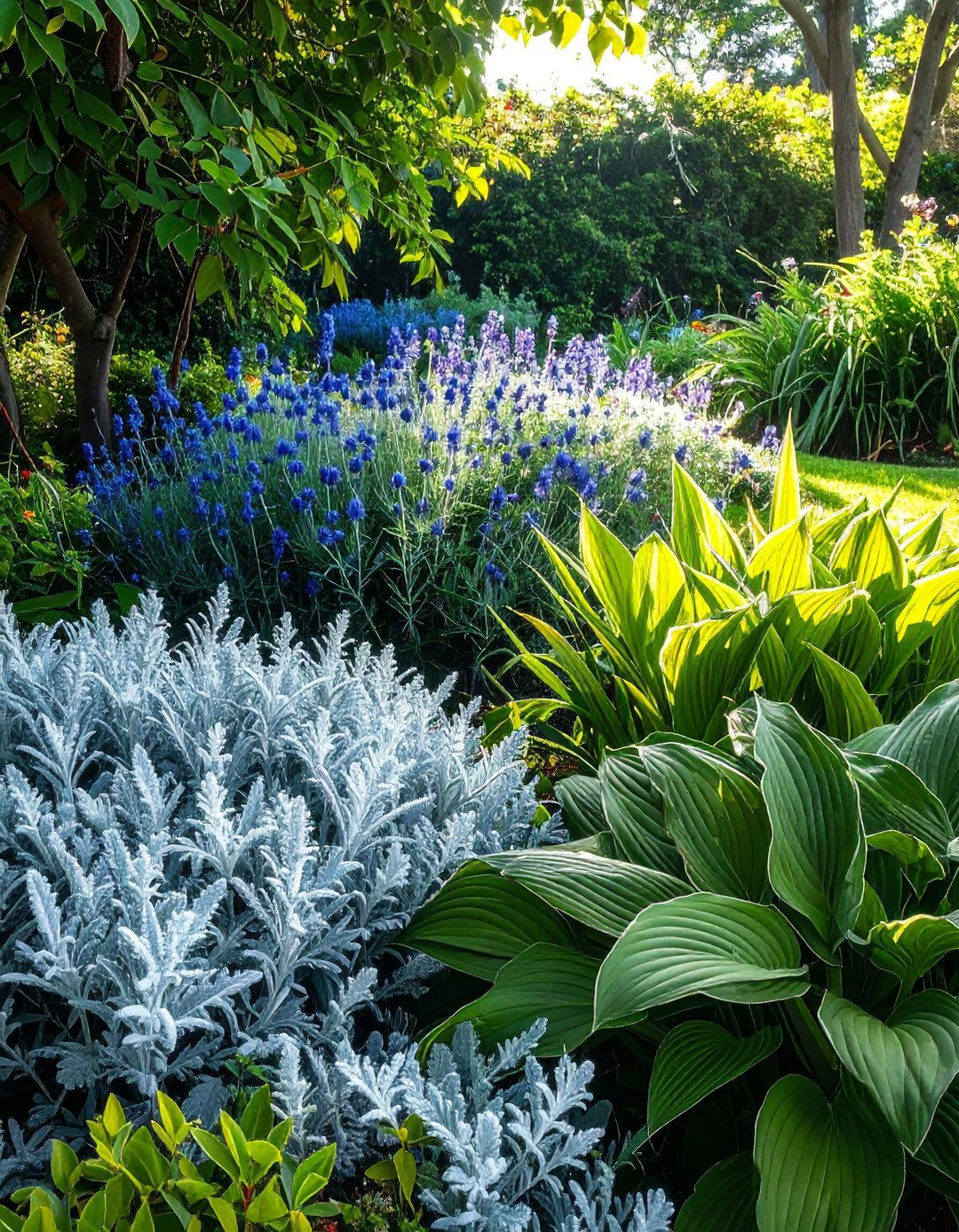
Beyond flowers, a textural foliage sensory garden celebrates the diverse feel of leaves and stems. This idea involves selecting plants specifically for their unique textures. Include soft, fuzzy plants like Lamb's Ear, spiky varieties such as Sea Holly, and plants with smooth, waxy leaves like Hostas. The contrast between rough, smooth, soft, and sharp foliage creates a rich tactile experience. Arrange these plants where they can be easily touched from a path or seating area. This focus on foliage also ensures the garden remains interesting even when flowers are not in bloom, providing year-round sensory engagement.
7. Wind Chime and Tall Grasses Sensory Garden
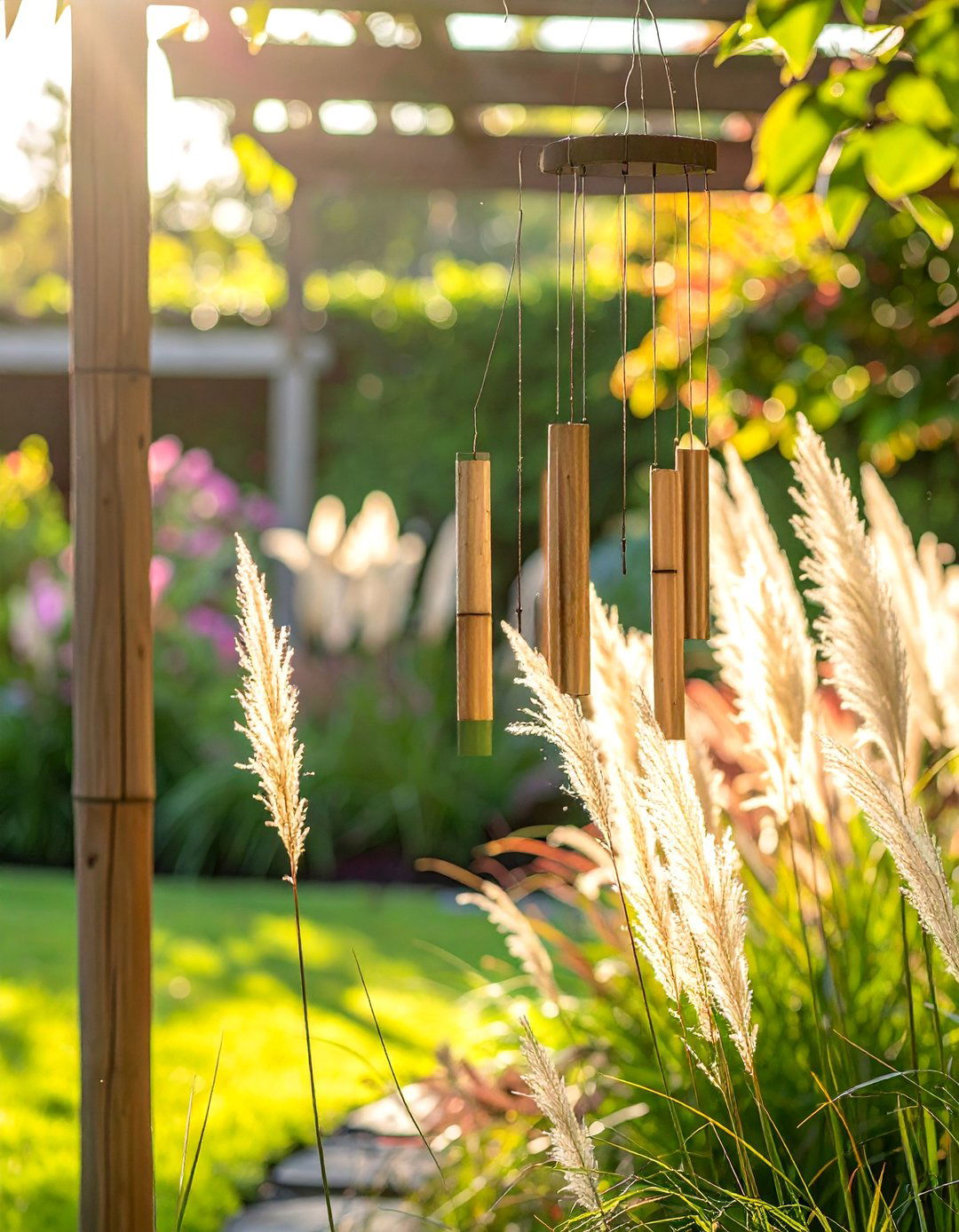
This sensory garden idea focuses on capturing the sound of the wind. By strategically placing wind chimes made from different materials like bamboo, metal, or capiz shells, you can create a variety of musical tones. Complement these with ornamental grasses such as Fountain Grass or Zebra Grass. As the breeze passes through, the grasses will create a gentle, rustling sound that harmonizes beautifully with the chimes. This combination of natural and melodic sounds fosters a meditative and serene environment, encouraging you to sit, listen, and relax as the garden responds to the ever-changing wind.
8. Raised Planter Sensory Garden for Accessibility
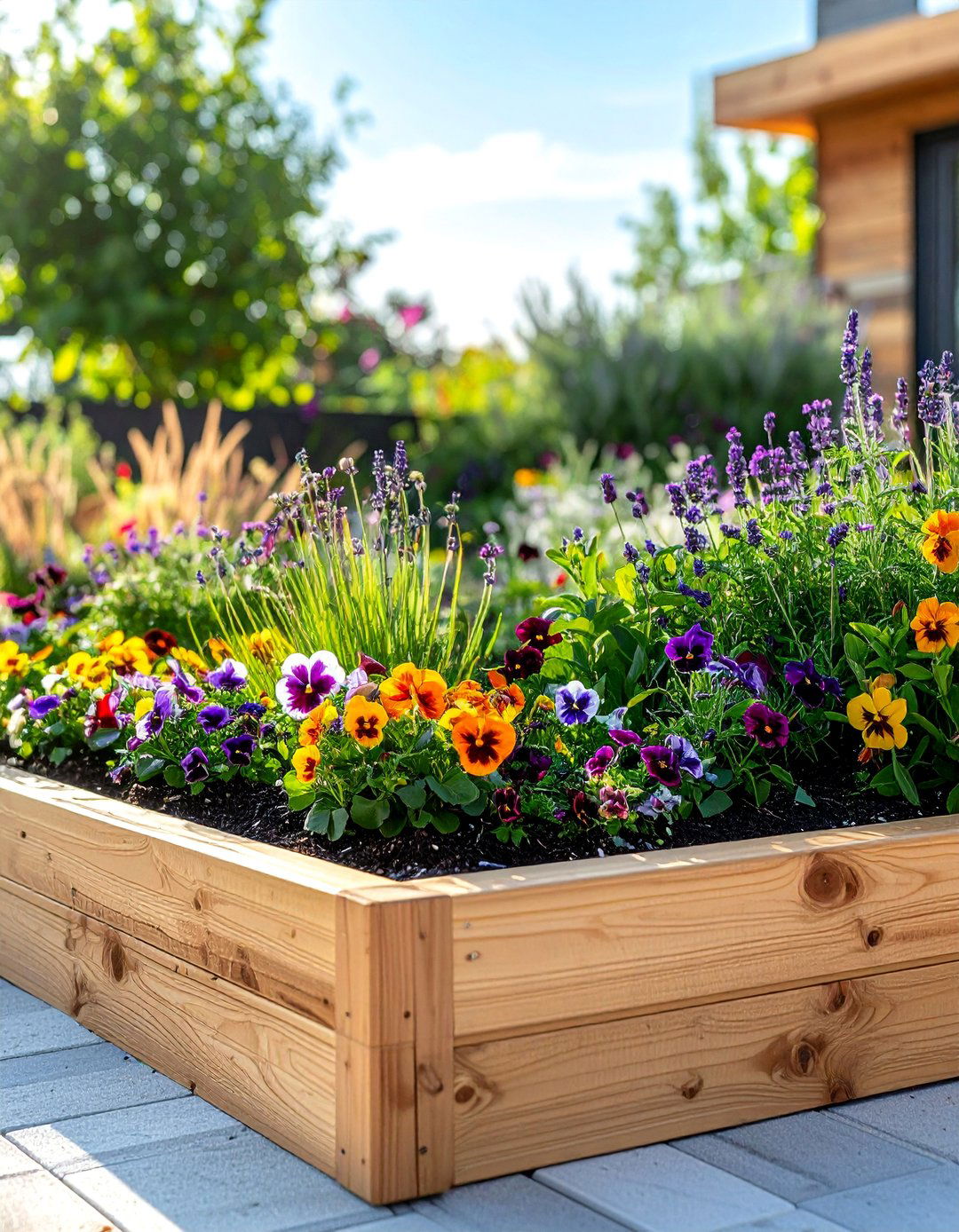
A sensory garden with raised planters ensures everyone can interact with the plants, regardless of mobility. Building garden beds at waist height makes it easy for those in wheelchairs or with difficulty bending to touch, smell, and care for the plants. These planters are perfect for showcasing a mix of sensory plants, from fragrant herbs and soft-leaved specimens to edible greens and colorful flowers. The contained nature of raised beds also helps in managing soil quality and keeping the garden tidy, making it a practical and inclusive design for a multi-sensory experience.
9. Night-Scented Sensory Garden
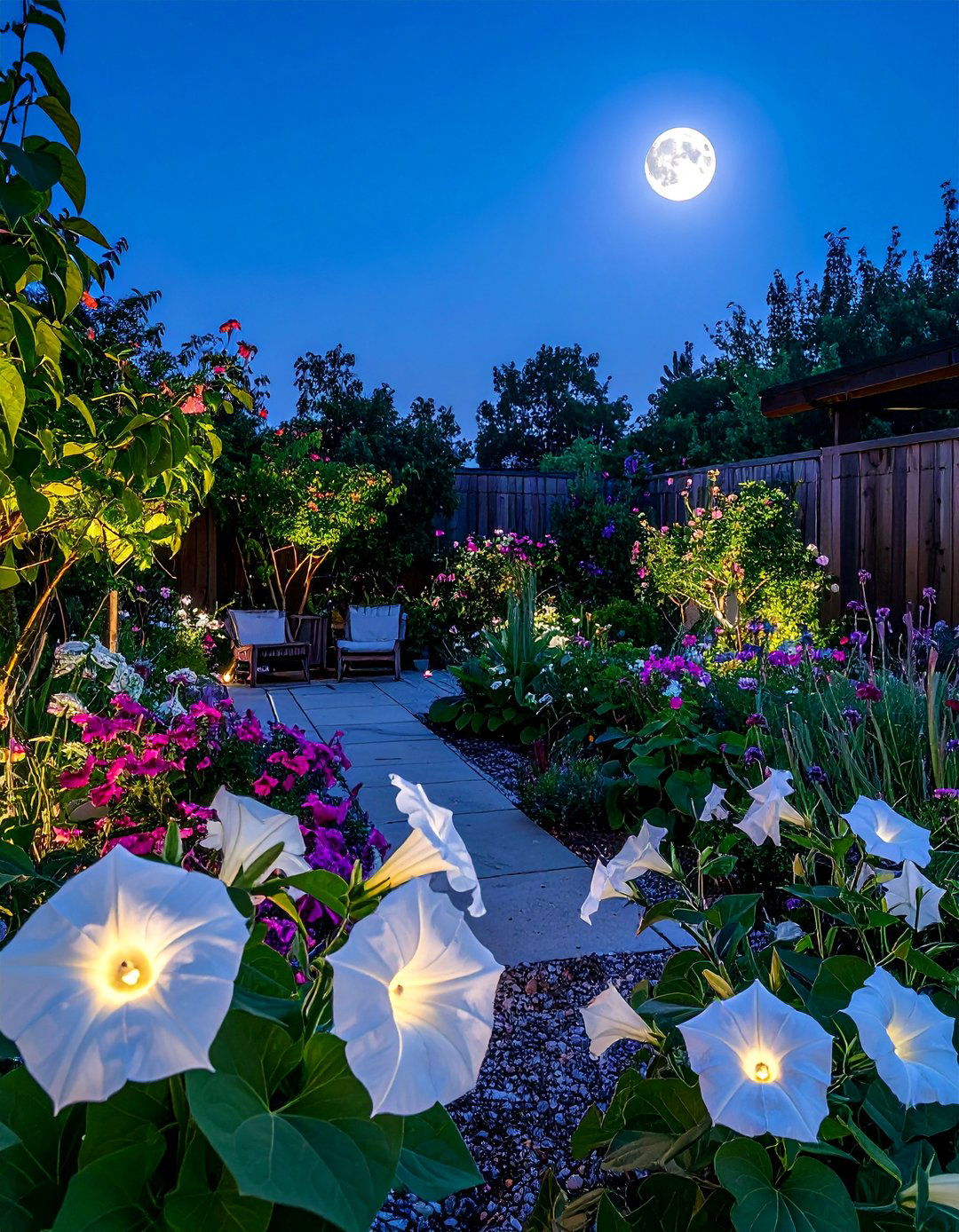
To create a magical experience after dusk, design a night-scented sensory garden. This idea focuses on plants that release their intoxicating fragrances in the evening. Plant specimens like Night-Blooming Jasmine, Moonflower, Nicotiana, and Evening Primrose near a patio or window where their scents can be enjoyed. The pale, luminous colors of their flowers also catch the moonlight, adding to the visual appeal. This type of garden completely transforms at nightfall, offering a unique and enchanting sensory experience that is often missed in traditional garden designs, providing a perfect setting for quiet evening reflection or relaxation.
10. Wildlife Attraction Sensory Garden
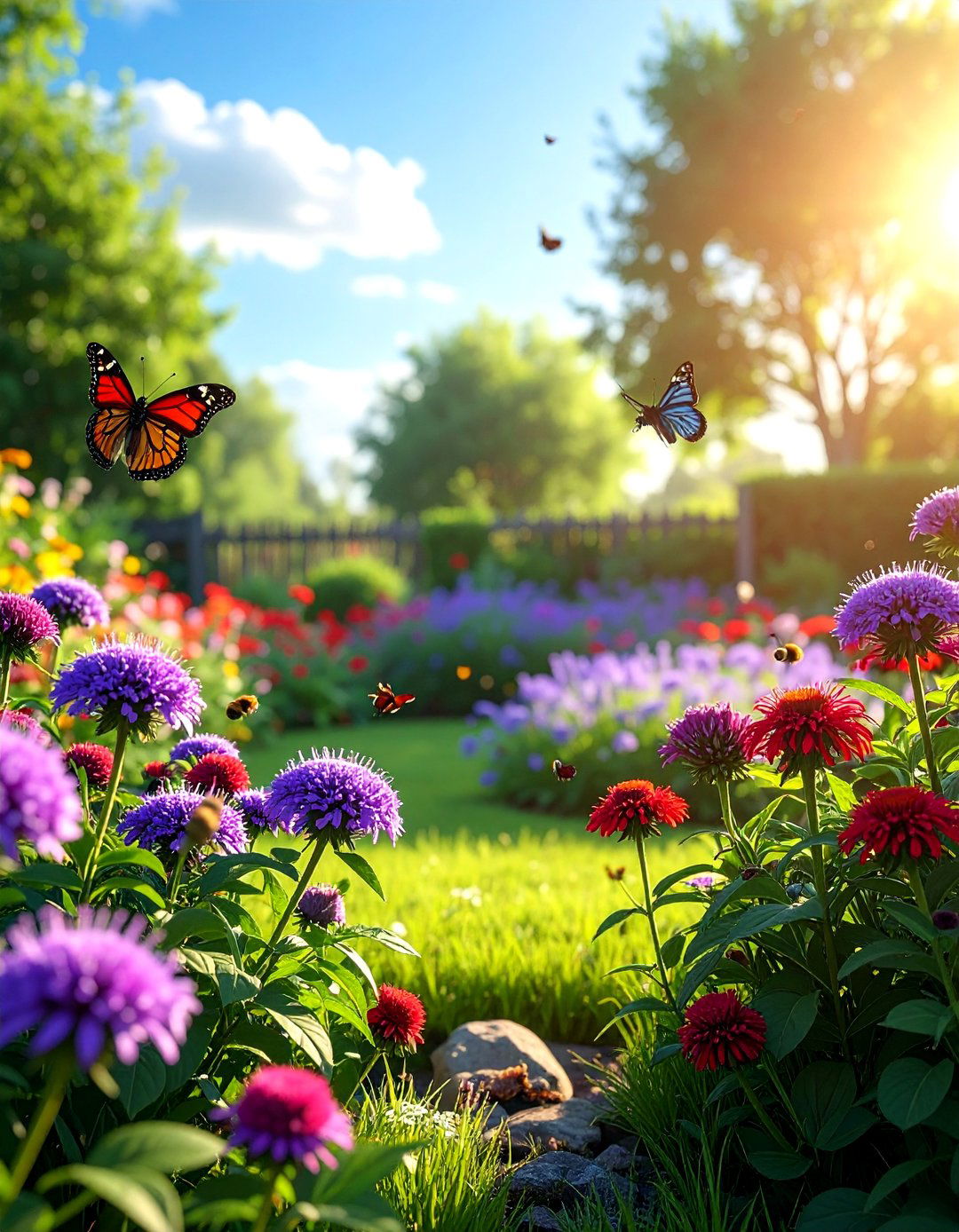
A wildlife attraction sensory garden is designed to engage the senses by inviting birds, bees, and butterflies. Plant nectar-rich flowers like bee balm, coneflowers, and butterfly bush to bring vibrant color and movement. The sight of fluttering butterflies and the sound of buzzing bees and chirping birds add dynamic layers of sight and sound. A birdbath or a shallow water source can provide both a visual focal point and an auditory element with splashing sounds. This approach creates a lively, interactive ecosystem, reminding us of our connection to the natural world and stimulating our senses in an ever-changing way.
11. Vertical Wall Sensory Garden
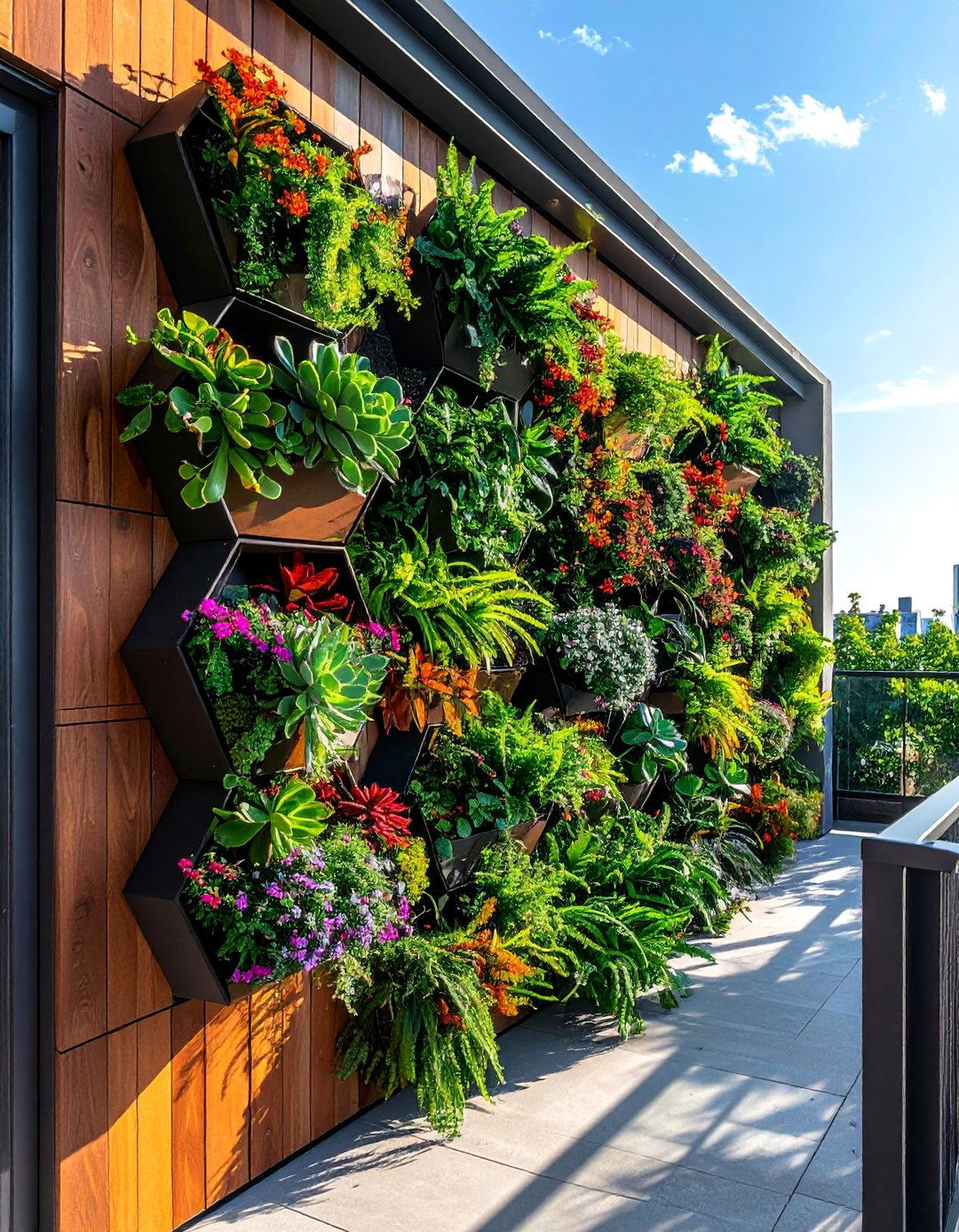
For those with limited space, a vertical wall sensory garden is an innovative solution. This design uses wall-mounted planters, pockets, or trellises to grow a variety of sensory plants. You can create a tapestry of textures with cascading vines, soft mosses, and upright foliage. Intersperse aromatic herbs like mint and thyme for a fragrant experience every time you brush past. A vertical garden brings the sensory elements up to eye and nose level, making them highly accessible and impactful. It’s a perfect idea for balconies, patios, or small courtyards, transforming a blank wall into a living sensory feature.
12. Crunching Gravel Path Sensory Garden
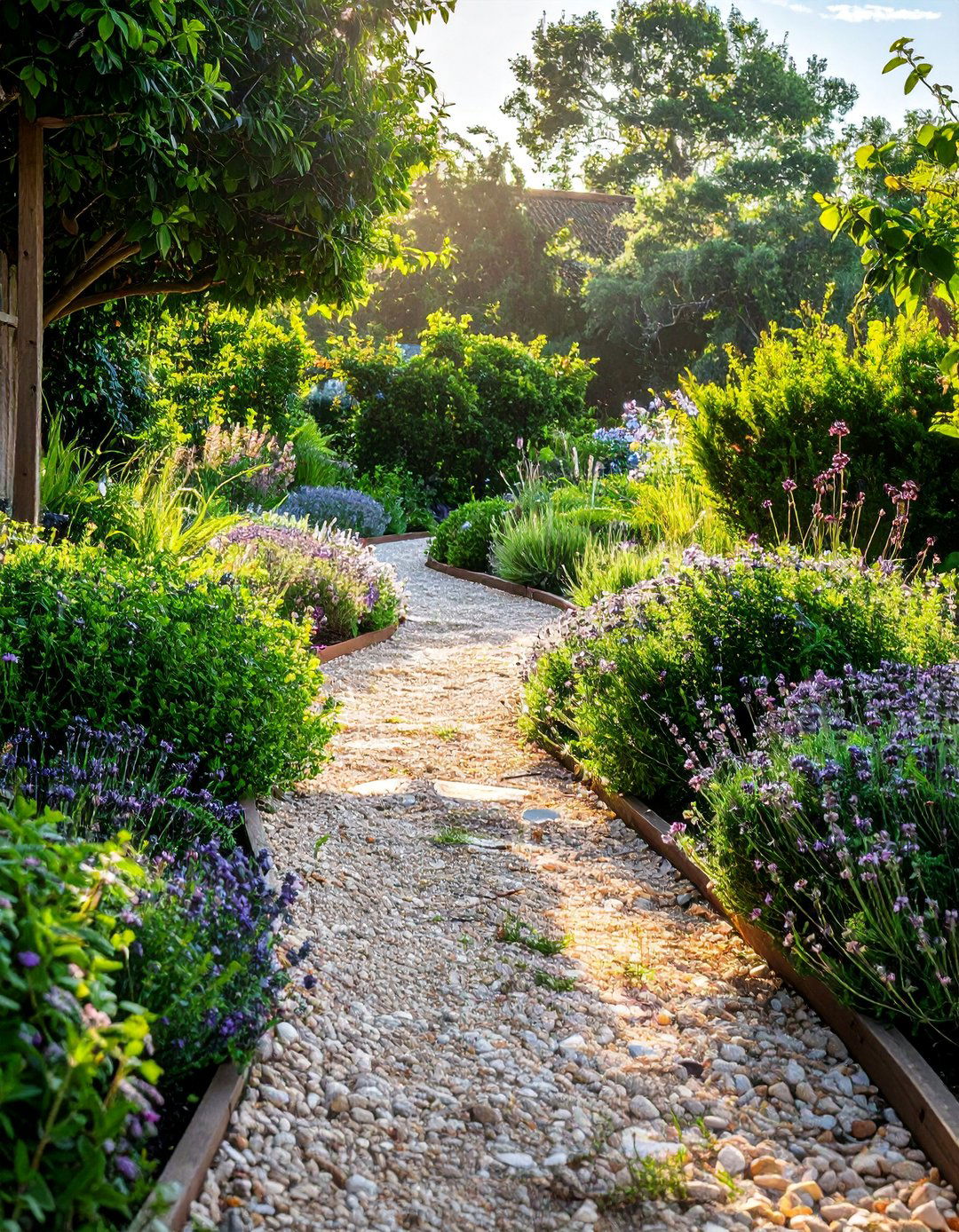
A crunching gravel path sensory garden adds a simple yet highly effective auditory element to your landscape. The distinct sound of footsteps on pea gravel or crushed stone is both satisfying and grounding. This type of path encourages a slower, more mindful pace as you walk through the garden. You can line the path with low-growing, fragrant herbs like creeping thyme, which releases its scent when gently crushed underfoot, combining sound and smell. The texture of the gravel also provides a tactile contrast to the softness of surrounding plant life, enhancing the overall sensory diversity of the space.
13. Reflective and Light-Catching Sensory Garden
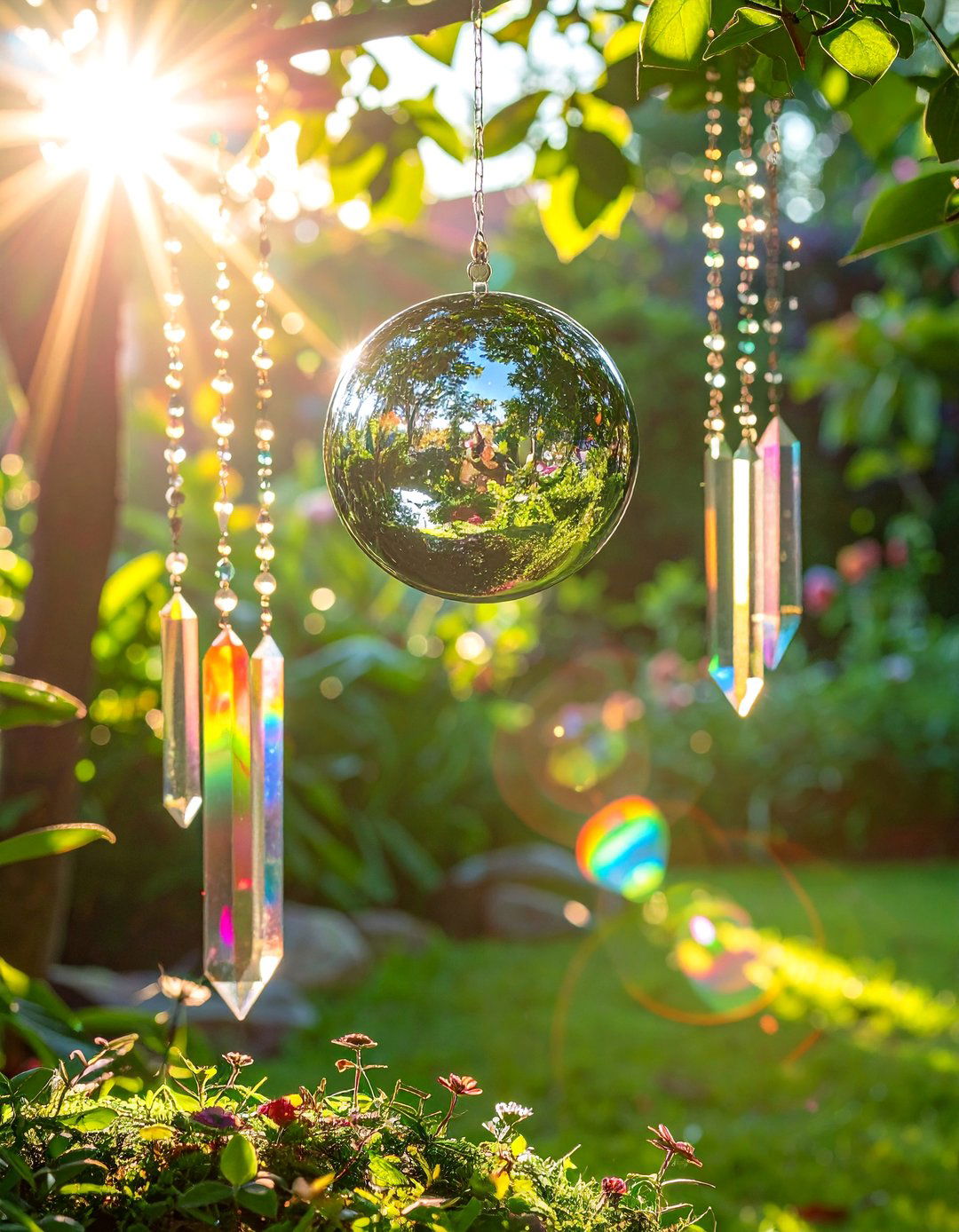
This sensory garden idea plays with light to create a dazzling visual experience. Incorporate elements that reflect sunlight and create movement. Mirrored gazing balls, stainless steel sculptures, or even a small, still pond can cast shimmering reflections throughout the space. Hang crystal suncatchers or mobile art from tree branches to scatter rainbows of light when the sun hits them. These elements add a touch of magic and wonder, transforming the garden as the light changes throughout the day. The interplay of light and reflection creates a dynamic, visually stimulating environment that captivates and delights the eyes.
14. Culinary Herb Sensory Garden
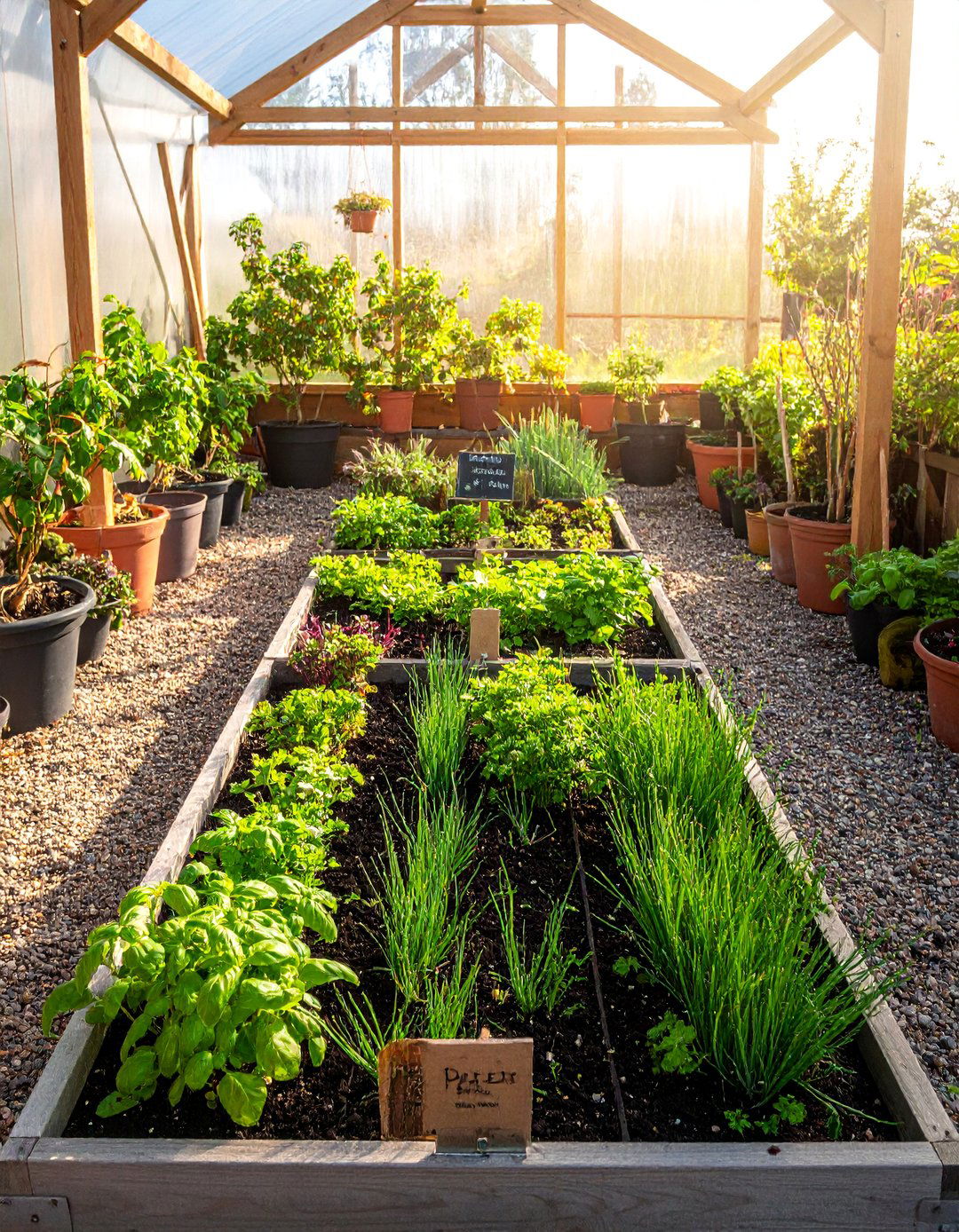
A culinary herb sensory garden is a practical and delightful way to engage taste and smell. Dedicate a sunny spot to growing a variety of herbs used in cooking, such as basil, parsley, oregano, chives, and cilantro. The act of crushing a leaf between your fingers releases a burst of aroma, while snipping a few sprigs for a meal connects the garden directly to your plate. This type of garden is incredibly rewarding, offering fresh flavors that elevate your cooking. It's a multisensory experience that starts with the sight and smell of the plants and ends with the delicious taste they add to your food.
15. Bamboo Grove Sensory Garden

For a truly immersive sound experience, consider planting a small bamboo grove sensory garden. The sound of wind rustling through bamboo stalks is uniquely soothing and evocative. As the hollow canes knock against each other, they create a gentle, percussive music that fosters a sense of tranquility and peace. Choose a clumping variety of bamboo to prevent it from spreading aggressively. The tall, linear form of the bamboo also creates strong vertical lines, offering a distinct visual element. This garden idea provides a secluded, Zen-like retreat where sound is the primary focus, perfect for meditation or quiet contemplation.
16. A Moss and Stone Sensory Garden
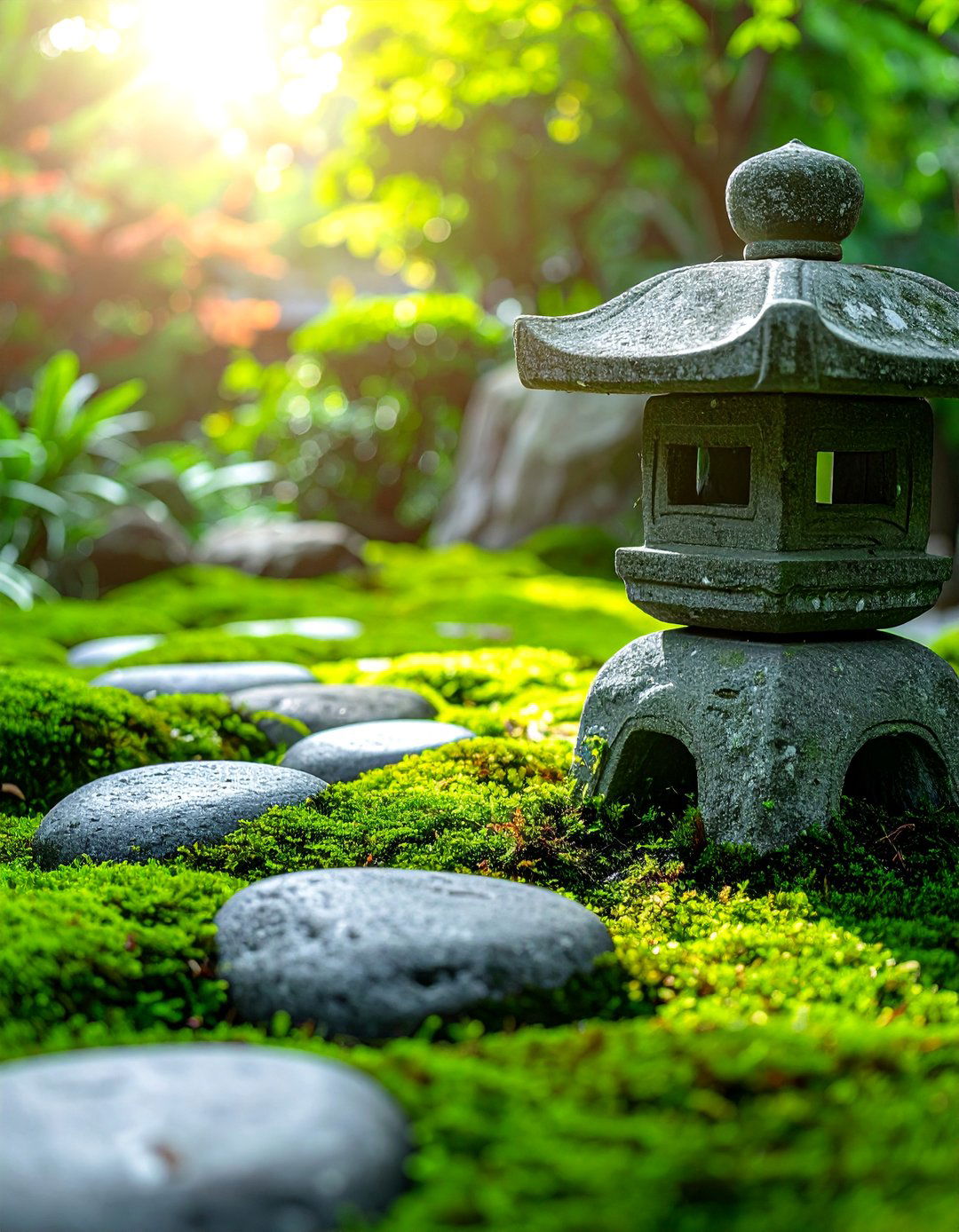
This sensory garden idea focuses on the subtle, serene beauty of moss and stone to create a deeply tactile and visual experience. Cultivate different varieties of soft, velvety moss over and between stones of various shapes and textures. The cool, damp feel of the moss contrasts wonderfully with the hard, smooth, or rough surfaces of the rocks. This design evokes the feeling of a tranquil forest floor or an ancient Japanese garden. It’s a low-maintenance concept that thrives in shady, damp areas. The minimalist palette of green and grey is visually calming, encouraging quiet observation and a gentle touch.
17. A Hummingbird and Butterfly Sensory Garden
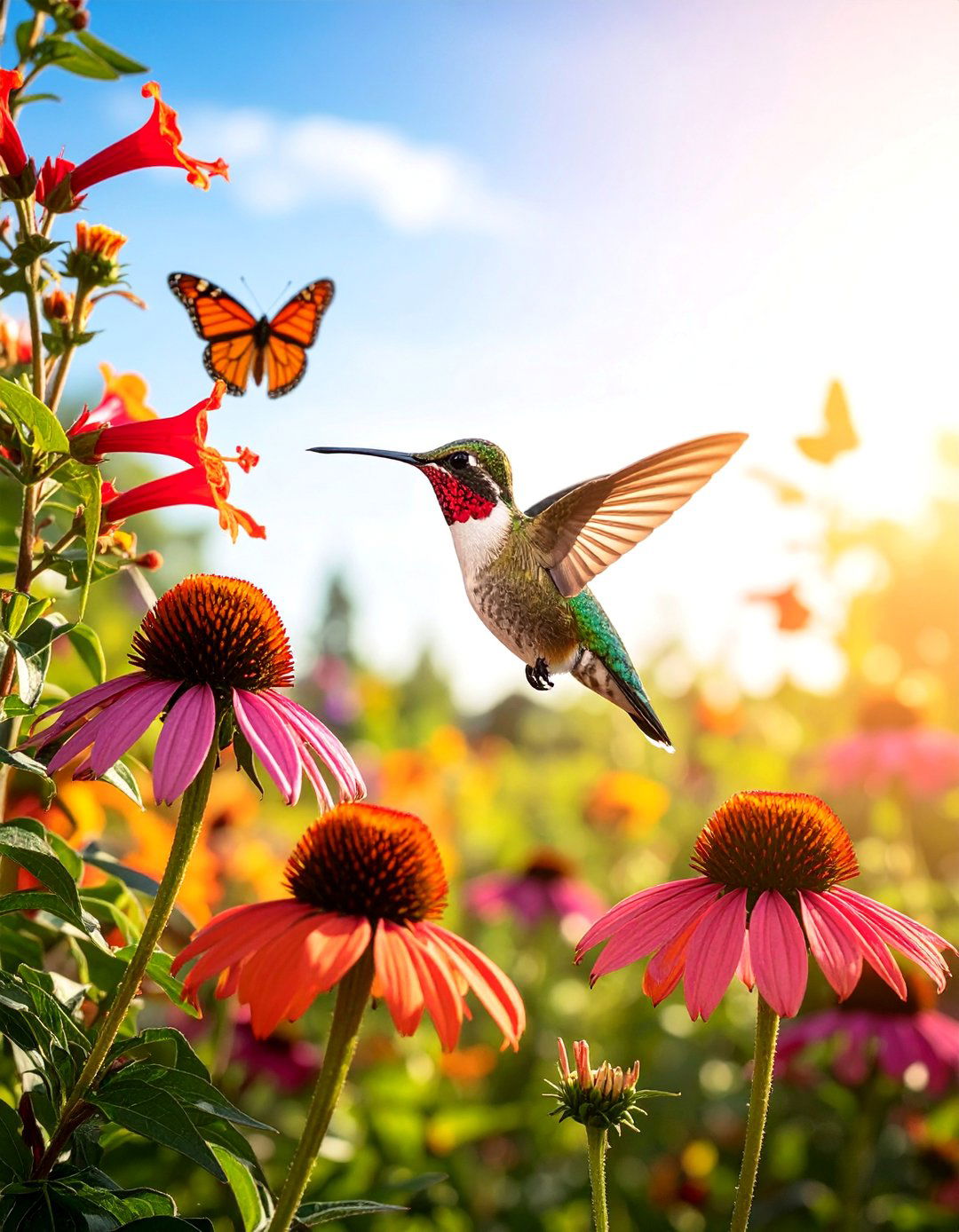
Design a sensory garden specifically to attract hummingbirds and butterflies for a display of dynamic movement and color. Plant tubular, nectar-rich flowers like salvias, fuchsias, and trumpet vines for hummingbirds, and flat-topped flowers like zinnias, asters, and milkweed for butterflies. The sight of these creatures flitting from flower to flower is visually captivating. The gentle hum of a hummingbird’s wings adds a subtle auditory element to the space. This garden is a living spectacle that changes throughout the day, providing endless visual stimulation and a deep connection to the local ecosystem, making your garden a lively hub of activity.
18. A Sundial and Sculpture Sensory Garden
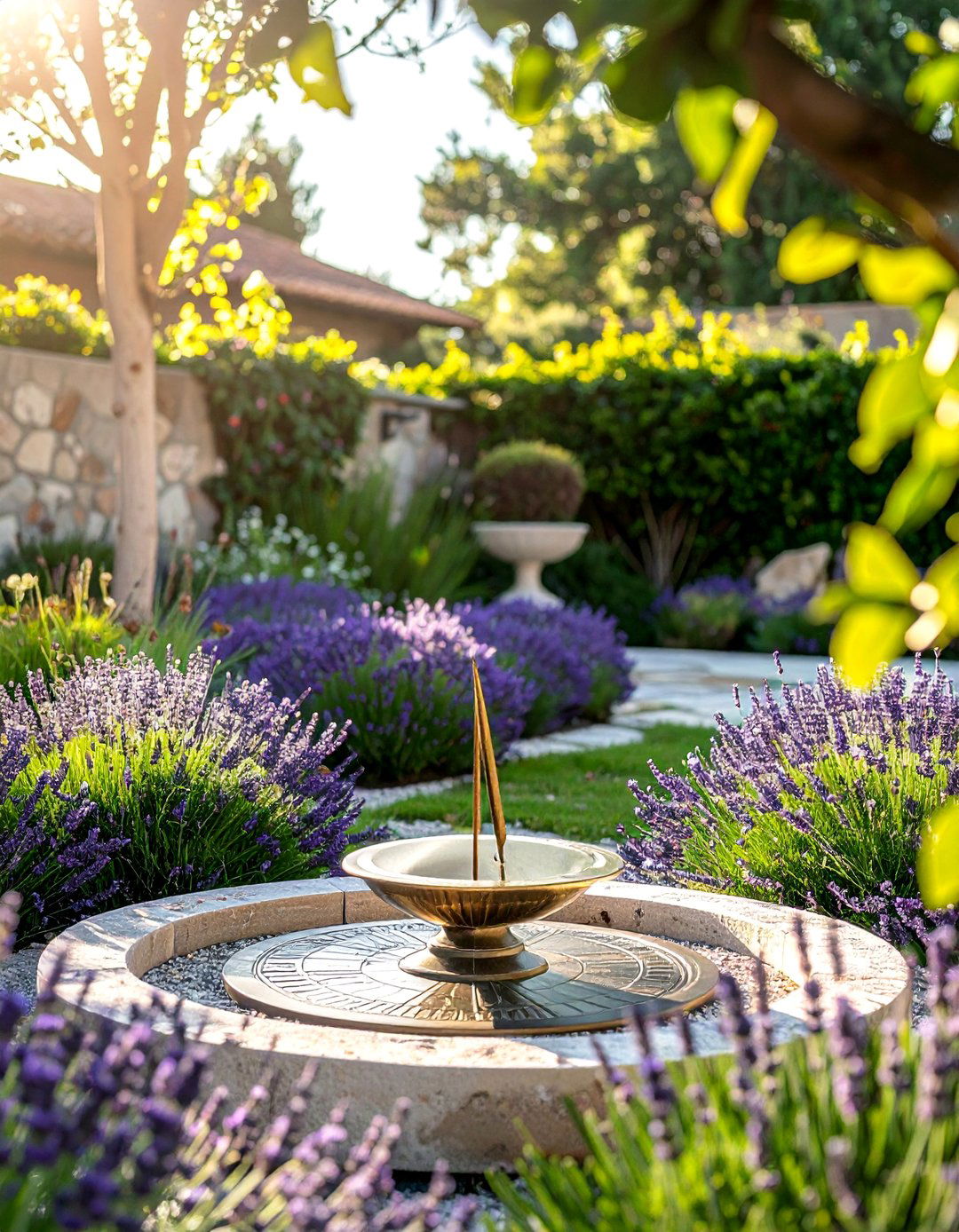
Incorporate man-made art to add another layer of sensory interest with a sundial and sculpture sensory garden. A centrally placed sundial provides a focal point and a connection to the passage of time, engaging the intellect as well as the eyes. Add sculptures made from different materials—a smooth, polished stone statue for a tactile experience or a metal piece that chimes lightly in the wind. These structural elements provide year-round visual interest and can be used to frame views or create distinct zones within the garden, blending the beauty of nature with the thoughtful touch of human artistry.
19. A Rock Garden for Sensory Exploration

A rock garden sensory garden offers a fascinating landscape for exploring texture, form, and temperature. Use a diverse collection of rocks, from large, rugged boulders to small, smooth river pebbles. The way sunlight warms the stones provides a unique tactile experience. Tuck hardy alpine plants and succulents like sedum and hens-and-chicks into the crevices. These plants often have intriguing textures of their own, from waxy to fuzzy. This type of garden is excellent for teaching about geology and drought-tolerant planting, providing a rugged and visually interesting space that encourages close inspection and touch.
20. A Container Sensory Garden for Patios
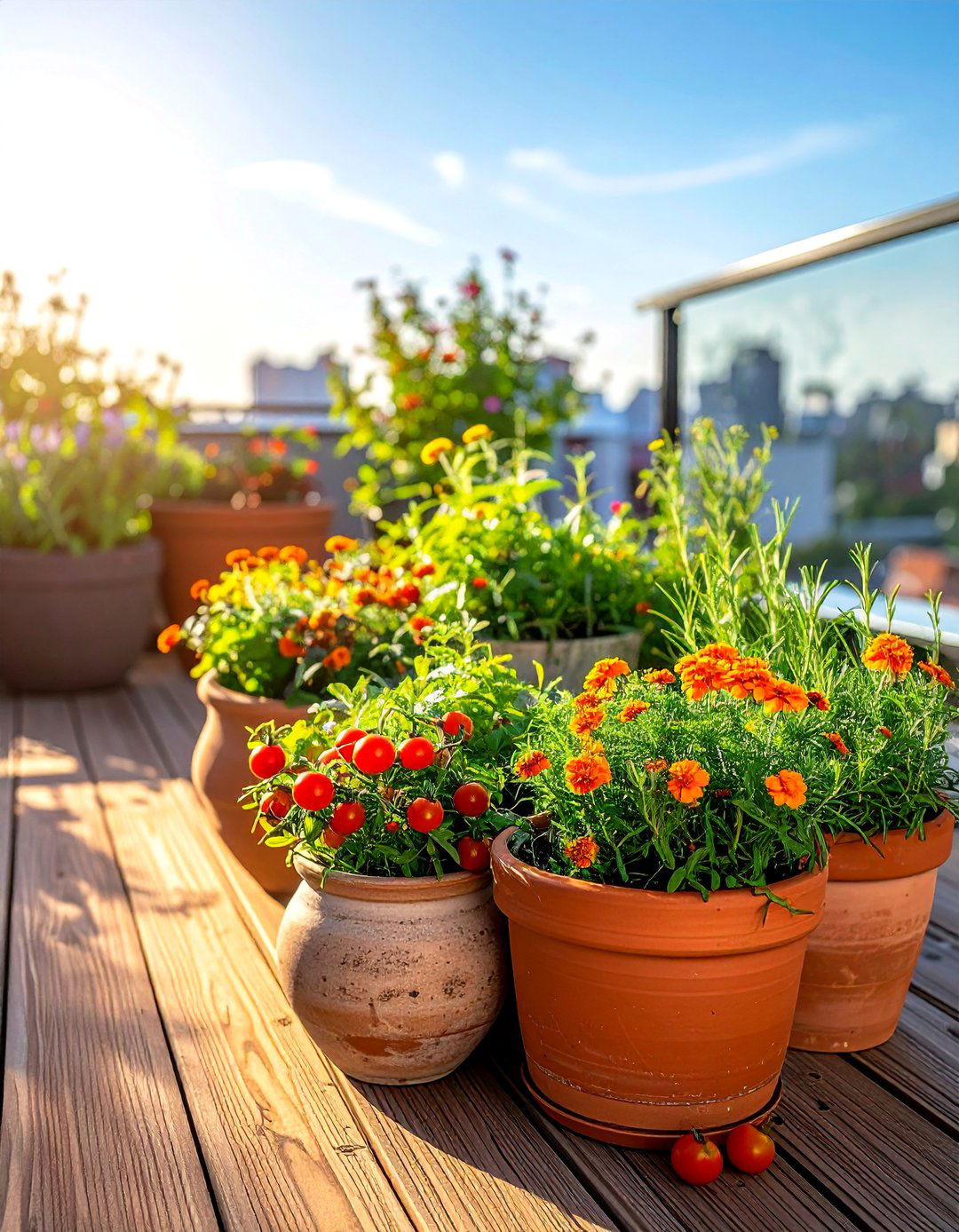
Even the smallest space can become a sensory oasis with a container sensory garden. This idea is perfect for patios, balconies, or decks. Use a variety of pots of different sizes, materials, and colors to create visual interest. Plant a mix of sensory plants in them: a pot of fragrant lavender, a container with soft lamb's ear, a pot of cherry tomatoes for taste, and a small ornamental grass that rustles in the breeze. Grouping the containers together creates a lush, immersive experience that you can easily interact with, proving that you don't need a large plot of land to create a rich multi-sensory retreat.
21. A Soothing Blue and Green Sensory Garden
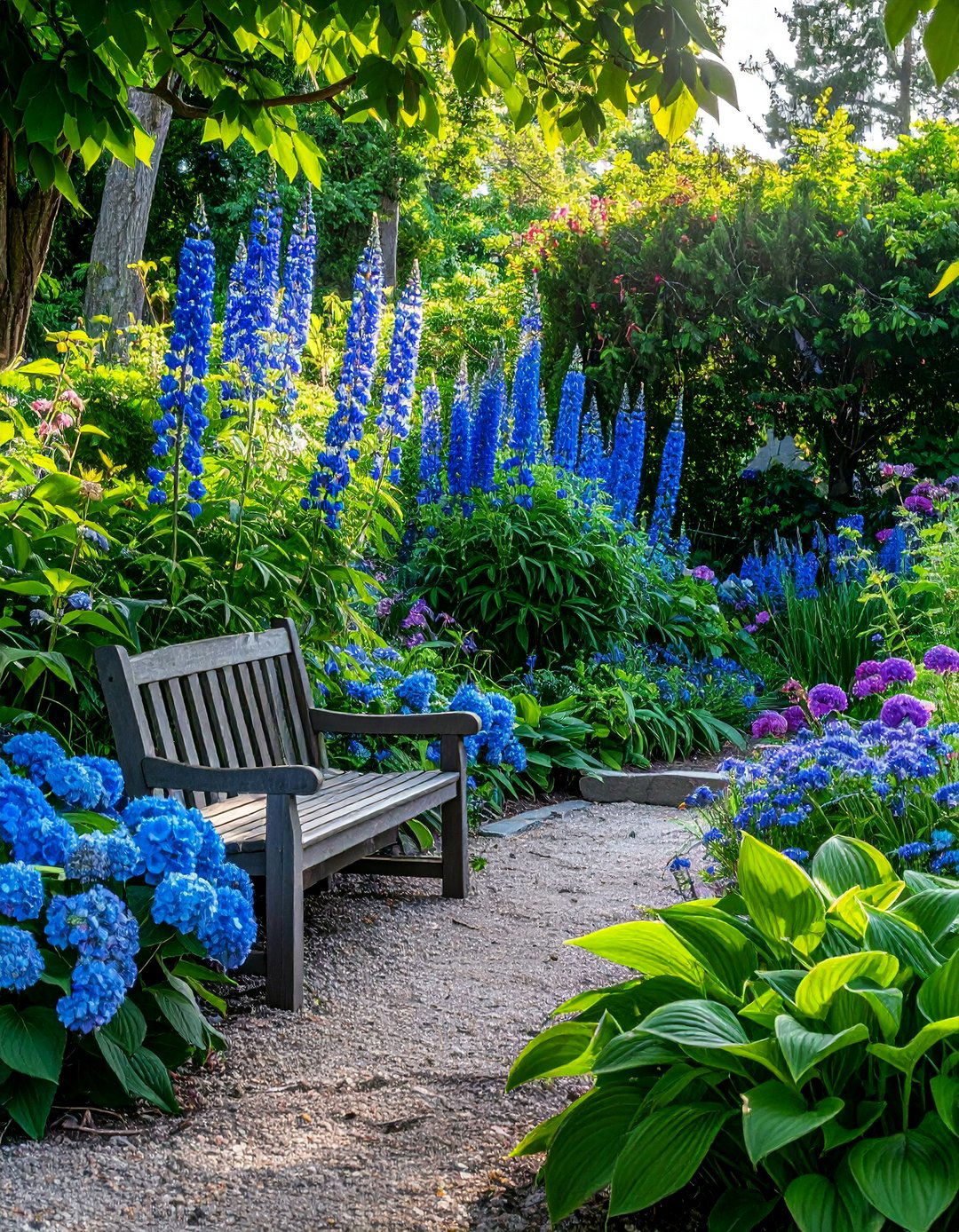
For a sensory garden designed for calm and relaxation, focus on a soothing blue and green color palette. These cool colors are known to have a tranquilizing effect on the mind. Plant flowers in shades of blue, purple, and white, such as delphiniums, lavender, and hydrangeas. Combine these with a rich tapestry of green foliage in various shades and textures. The result is a visually serene and unified space that feels restful and cool. This garden is perfect for a quiet seating area where you can de-stress, meditate, or simply enjoy a moment of peace surrounded by calming natural hues.
22. Interactive Musical Instruments Sensory Garden
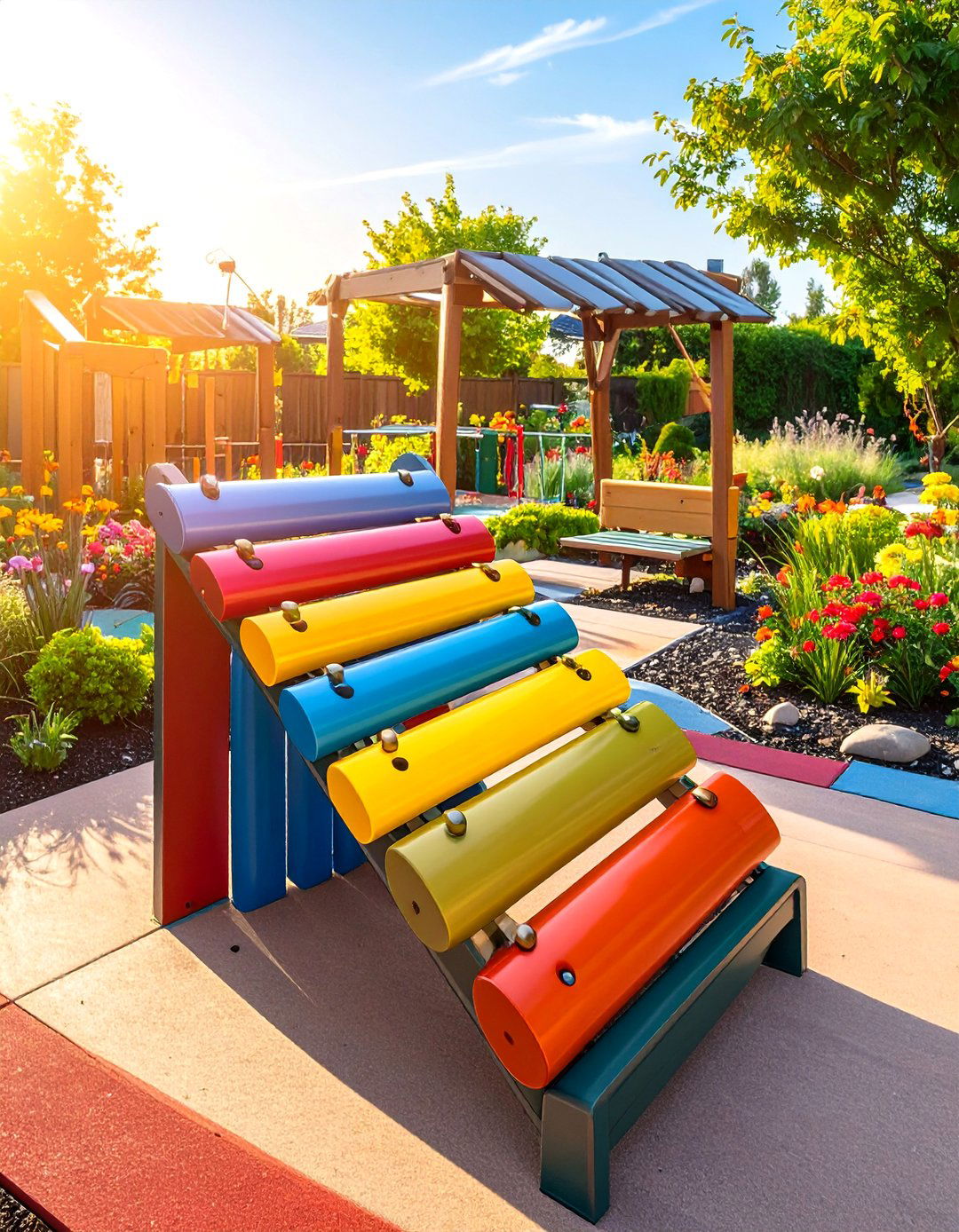
An interactive musical instruments sensory garden is especially engaging for children and the young at heart. Install outdoor-safe instruments like a large xylophone made of wood or metal, a set of tube drums, or hanging pan pipes. These features invite visitors to create their own sounds, adding a playful and creative auditory dimension to the garden. Place them along a path or in a designated clearing. This idea encourages exploration and experimentation with sound, making the garden a place for active participation rather than just passive observation, blending nature with the joy of making music.
23. A Fruit Tree Orchard Sensory Garden
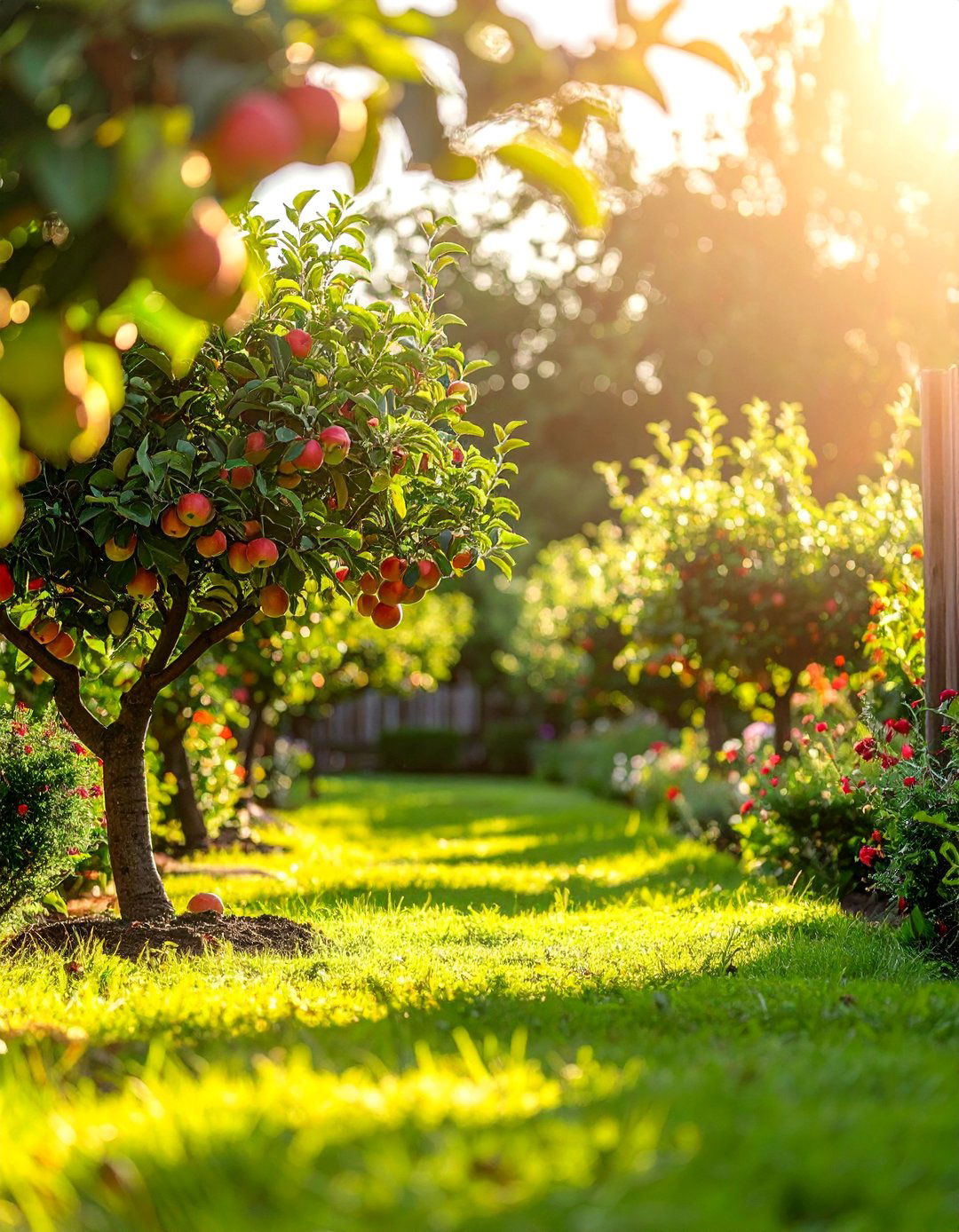
A small fruit tree orchard sensory garden engages multiple senses throughout the seasons. In spring, the sight and sweet fragrance of blossoms fill the air. In summer, the sound of buzzing bees is a constant, and the sight of ripening fruit is a promise of the harvest to come. Autumn brings the ultimate reward: the tactile pleasure of picking a ripe apple or pear and the crisp, juicy taste. Even in winter, the sculptural forms of the bare branches provide visual interest. Planting dwarf varieties makes this idea feasible even in smaller gardens, providing a year-round cycle of sensory delights.
24. A Mediterranean Sensory Garden
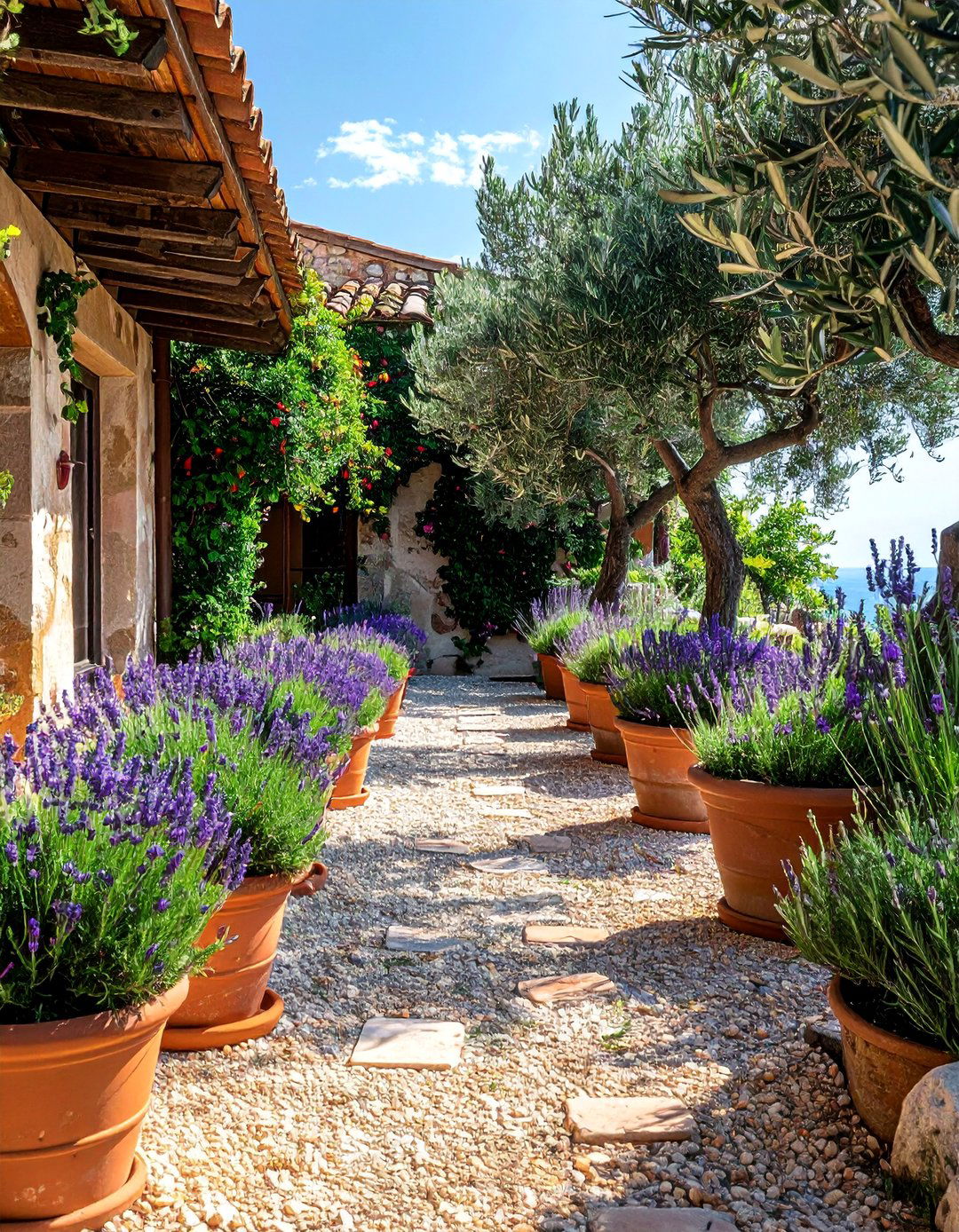
Create a Mediterranean sensory garden to evoke the feeling of a sun-drenched holiday. This style heavily features aromatic herbs like rosemary, lavender, and thyme, whose oils are released by the sun's warmth. The silvery-green foliage of olive trees and sage provides a soft, muted color palette. Use gravel paths that crunch underfoot and terracotta pots for visual warmth and texture. The sound of a small, bubbling fountain can complete the scene. This garden engages the sense of smell with its powerful herbal scents and the sense of sight with its distinct textures and colors, transporting you to a different place.
25. A Prairie-Style Sensory Garden with Ornamental Grasses
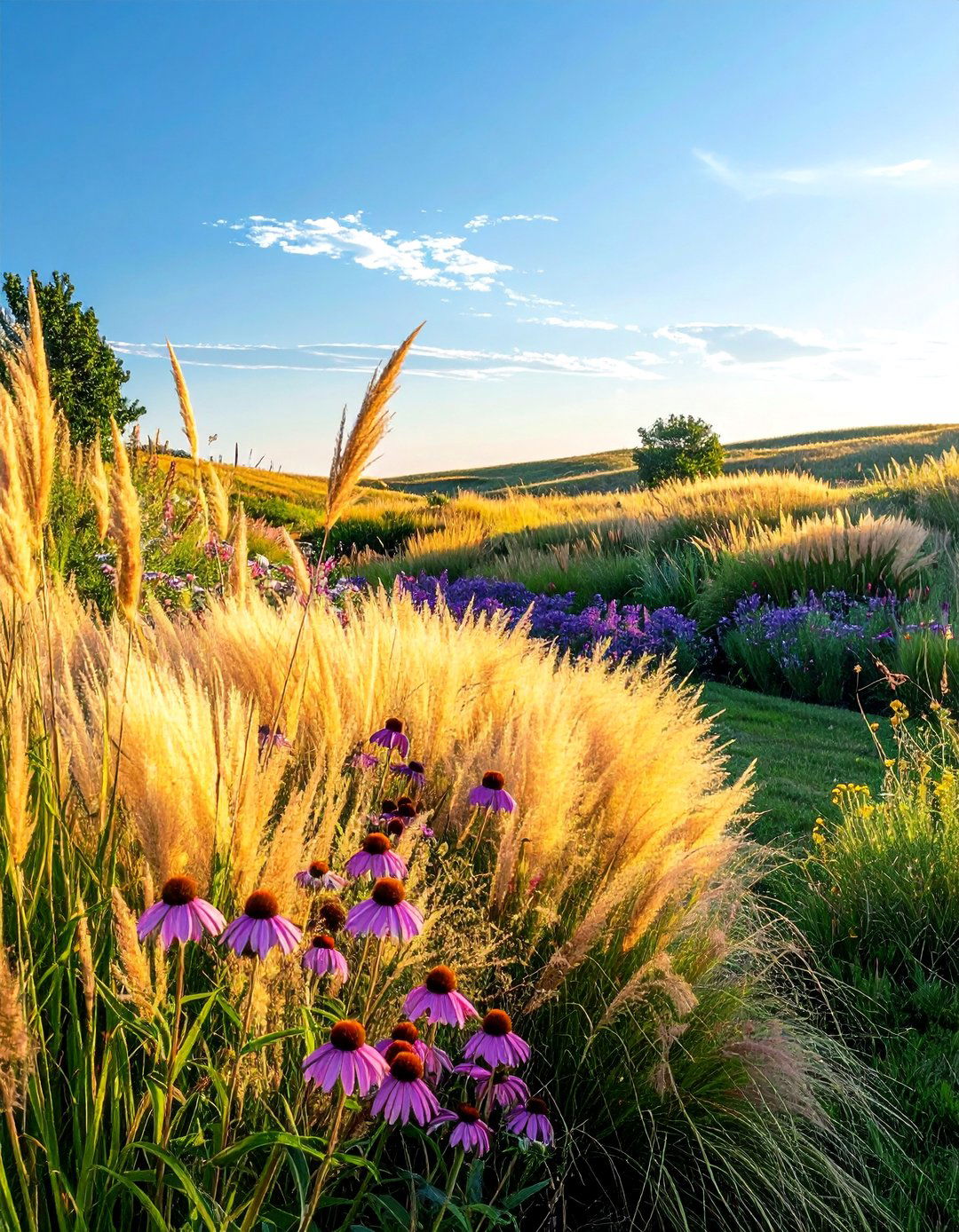
A prairie-style sensory garden uses ornamental grasses and hardy perennials to create a landscape full of movement and sound. Plant varieties like Big Bluestem, Switchgrass, and Prairie Dropseed alongside tough flowers like Coneflower and Black-Eyed Susan. The main sensory appeal comes from the constant motion of the grasses swaying in the wind and the soft, swishing sound they produce. In late summer and fall, the grasses develop feathery seed heads that catch the light beautifully, adding another visual dimension. This low-maintenance style offers a naturalistic and dynamic sensory experience that connects you to the wilder side of nature.
Conclusion:
Creating a sensory garden is a rewarding journey that transforms a simple outdoor area into an immersive sanctuary. By thoughtfully incorporating elements that appeal to sight, sound, smell, touch, and taste, you can design a space that is both beautiful and deeply engaging. Whether it's through the scent of herbs, the sound of a water feature, or the texture of a gravel path, each idea offers a unique way to connect with nature. Ultimately, a sensory garden nurtures well-being, providing a restorative escape that stimulates the mind and soothes the soul for everyone who enters.

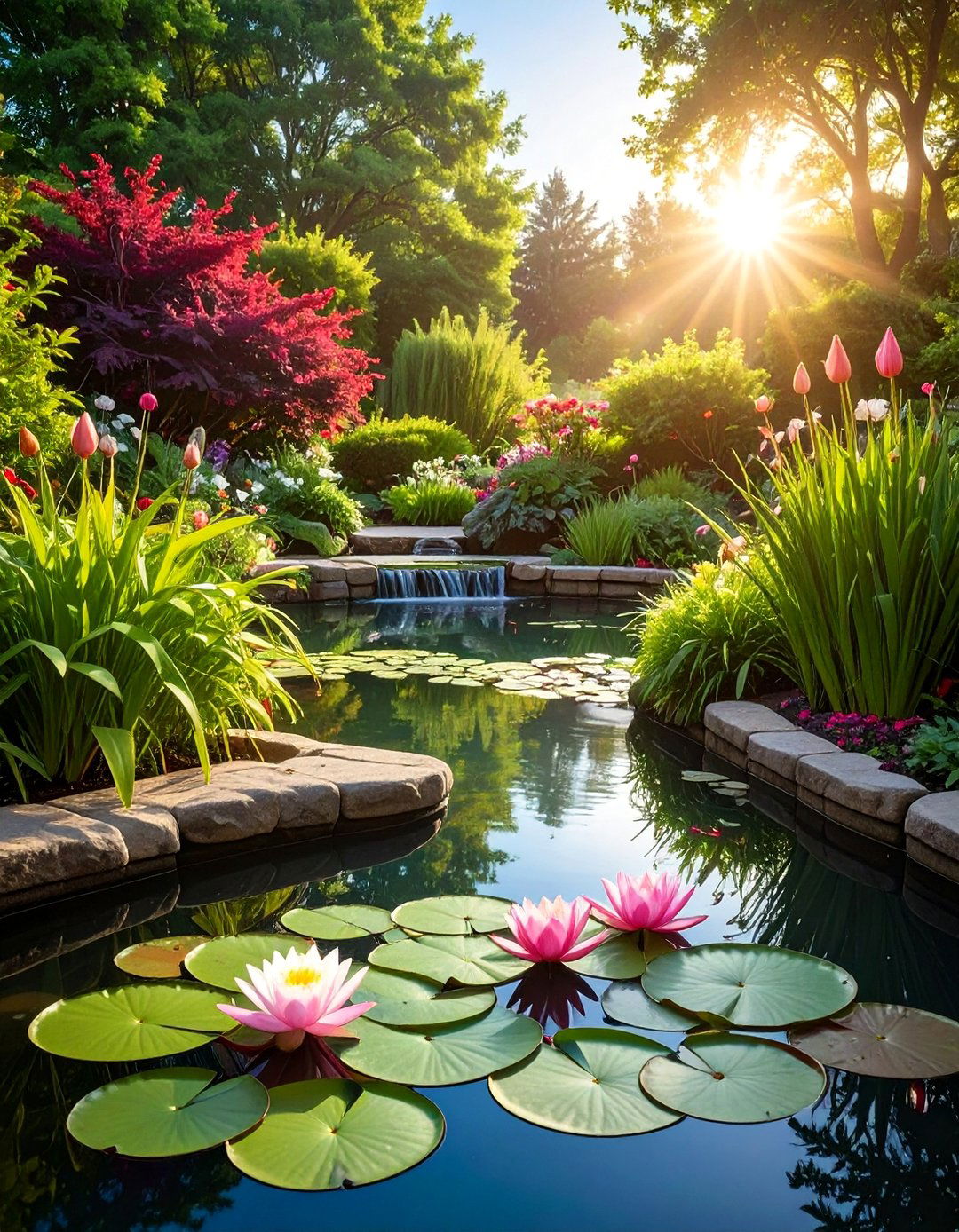
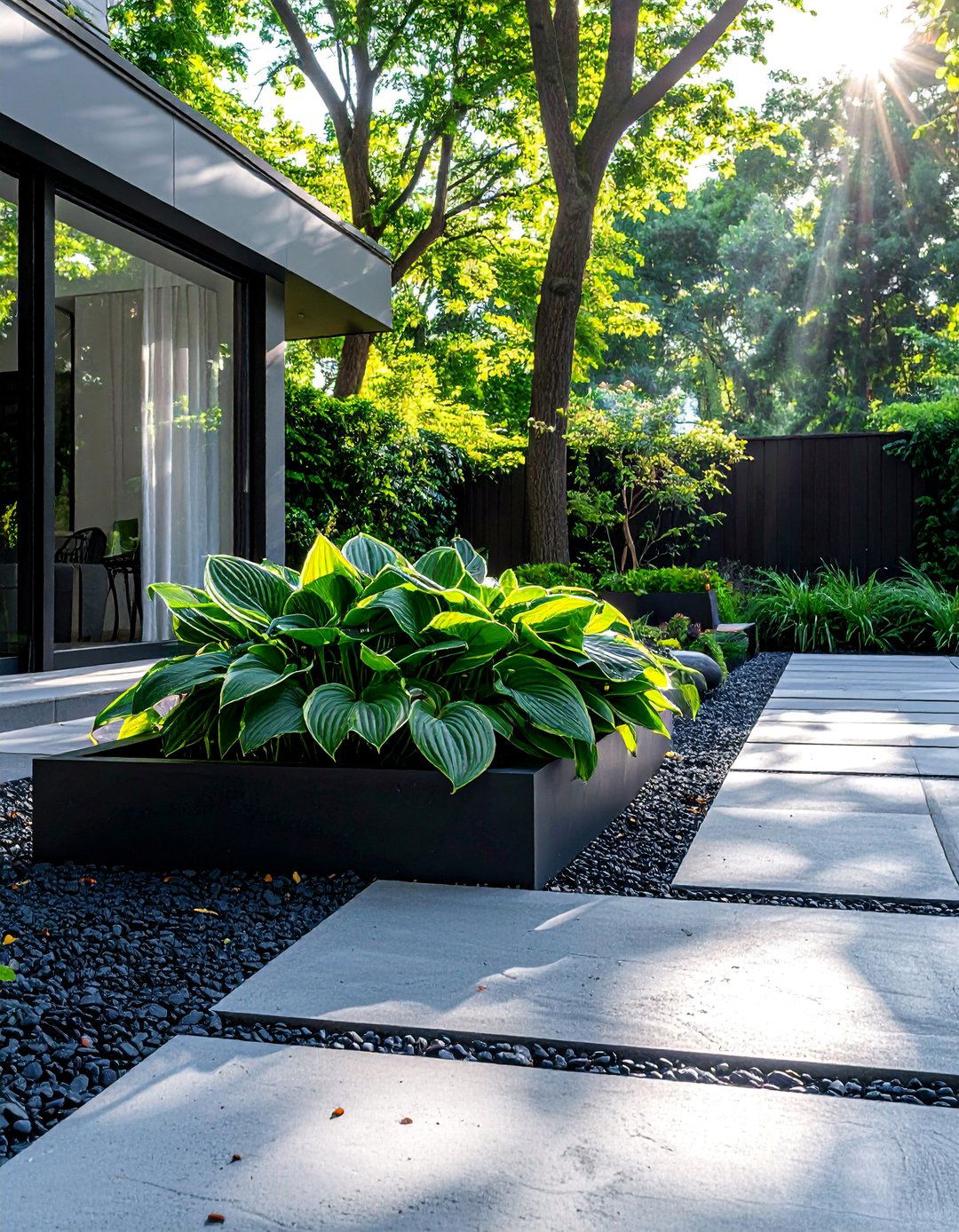

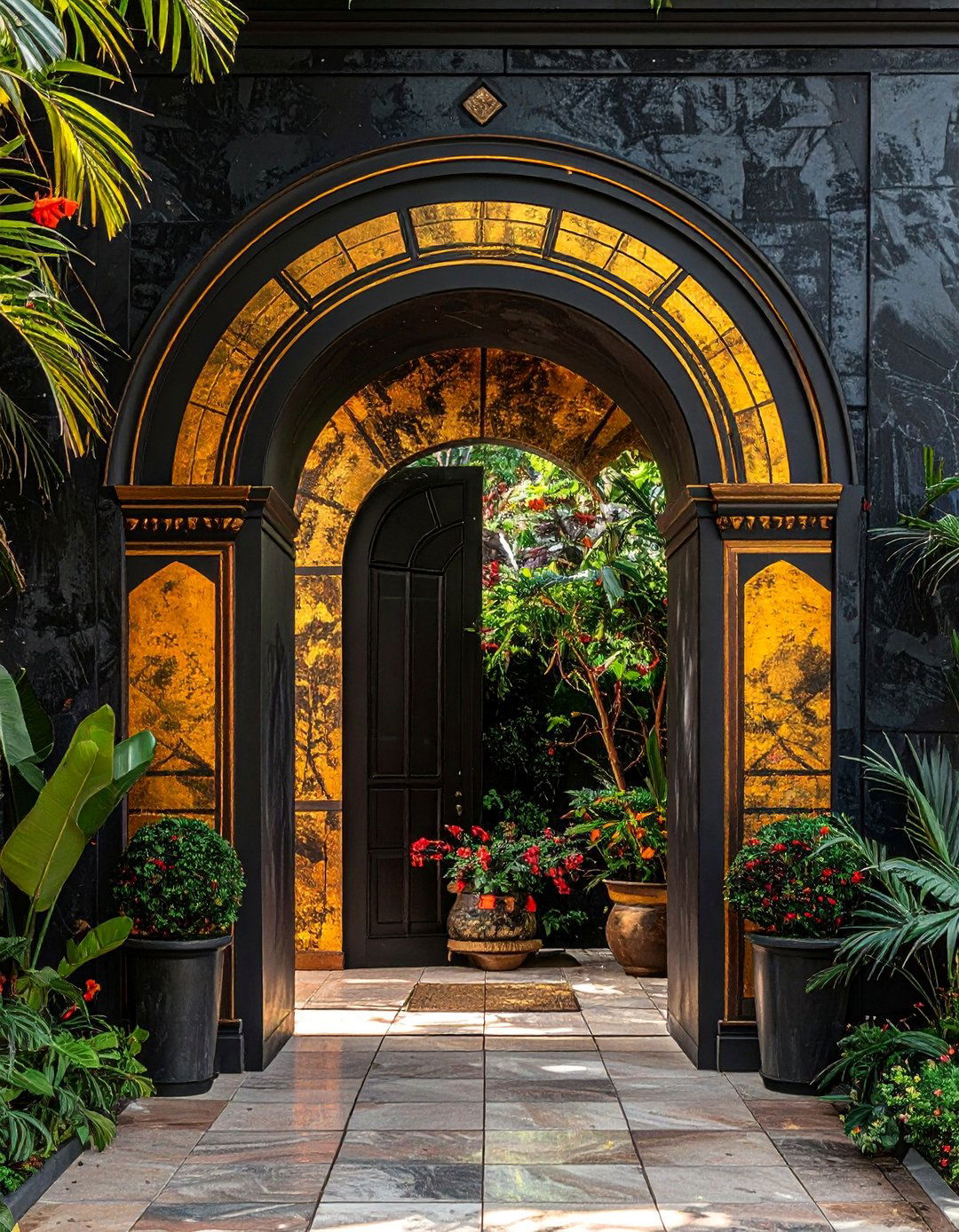
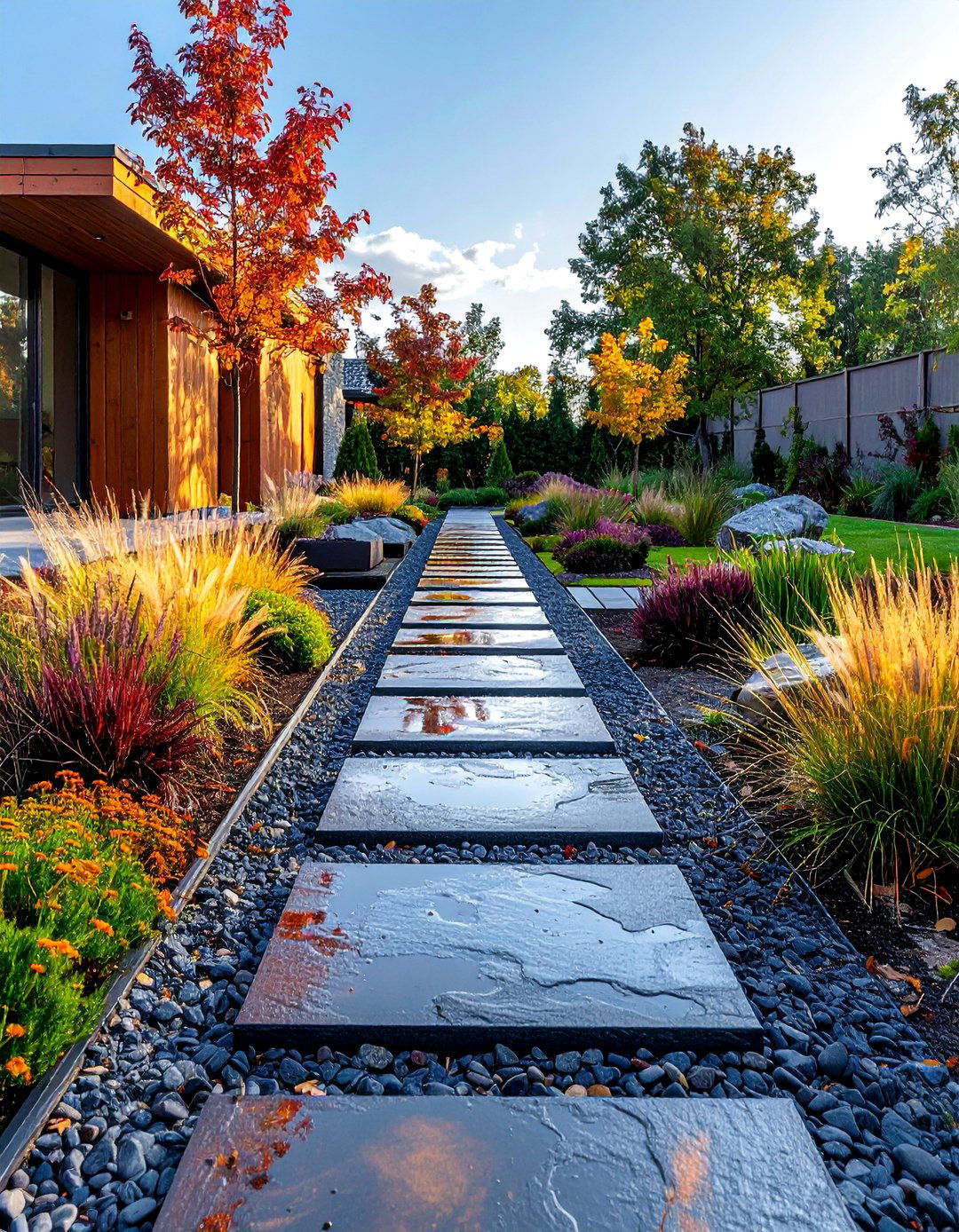

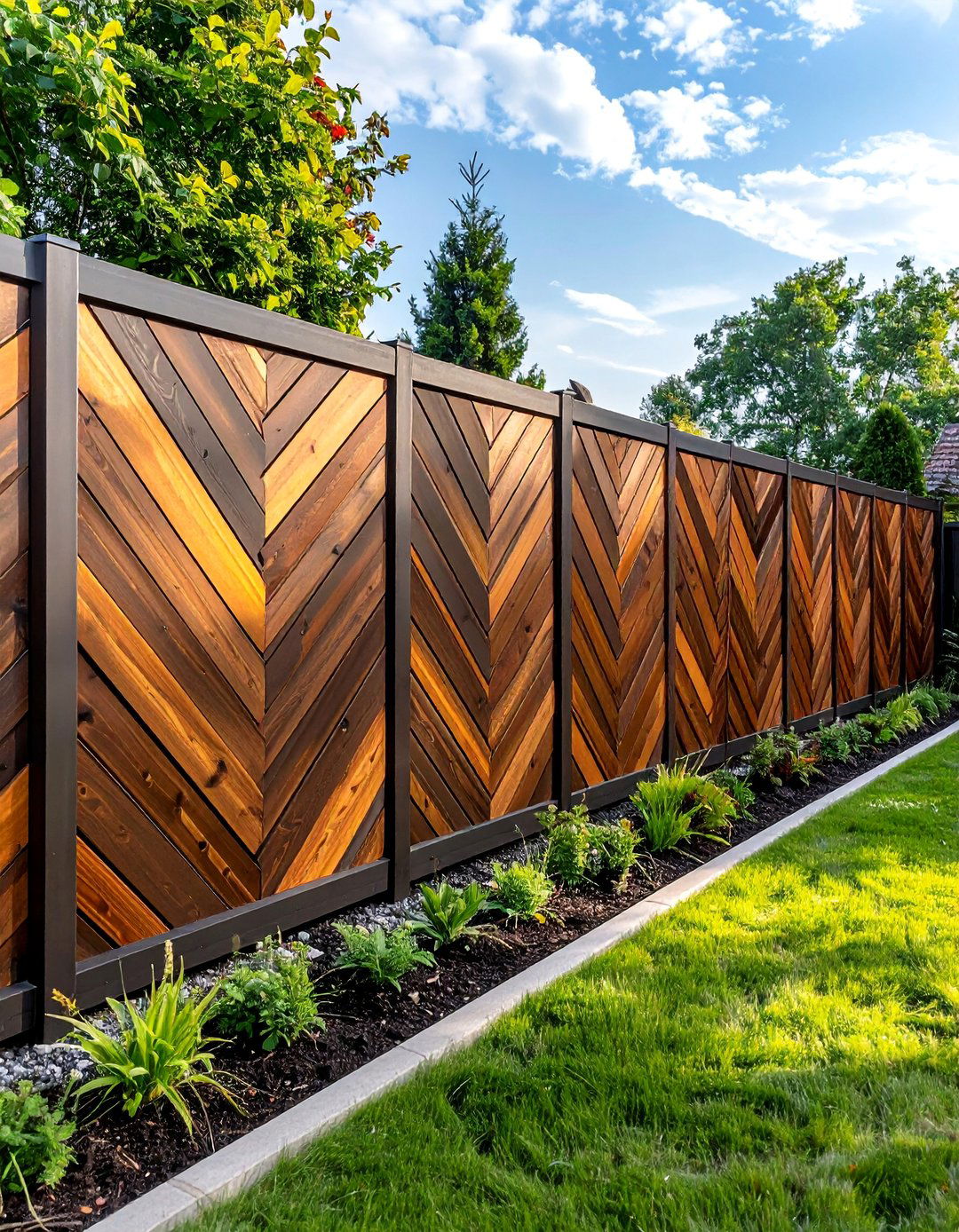
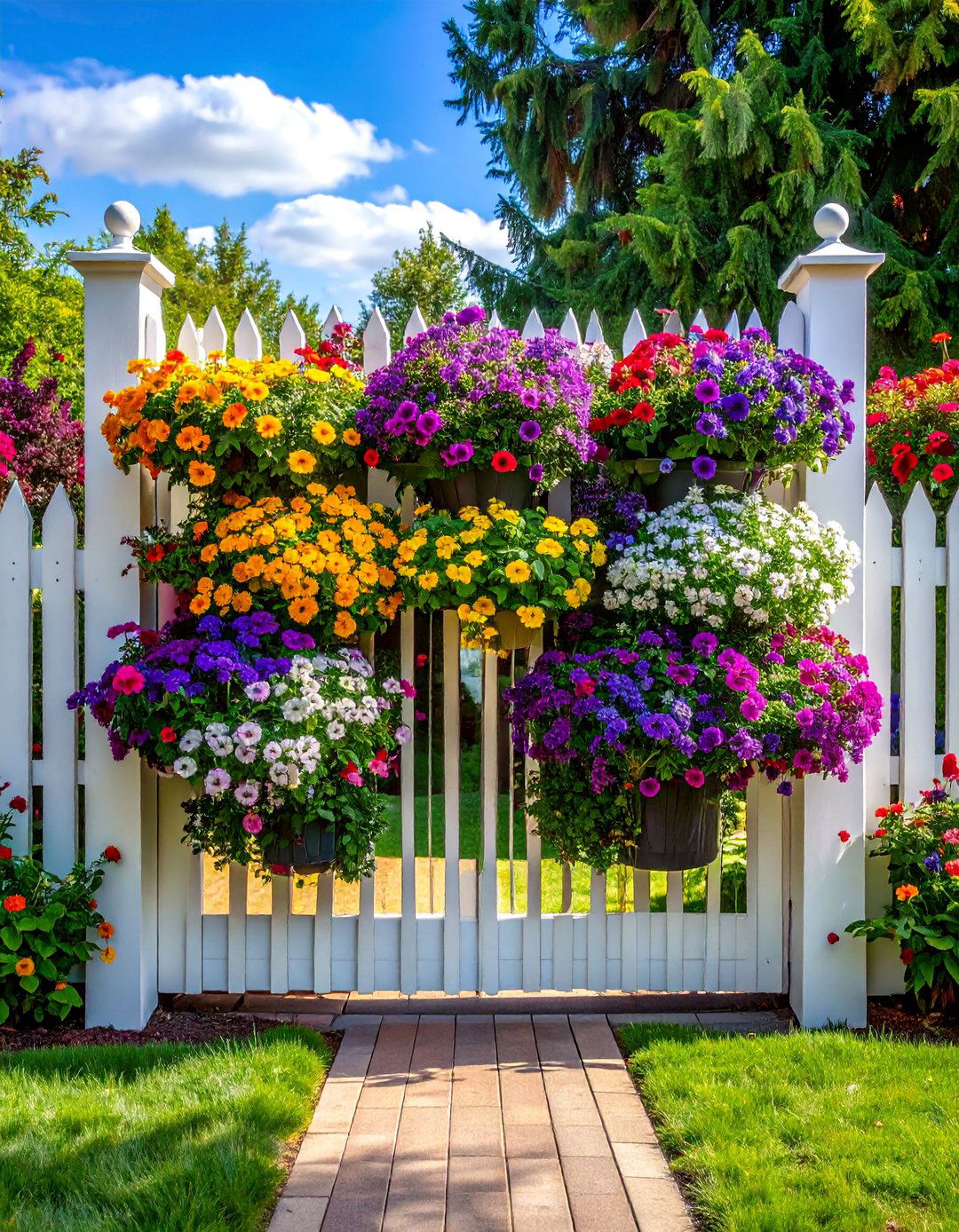
Leave a Reply